Companies leading the fight against coronavirus
Businesses that have stepped up to battle the Covid-19 pandemic
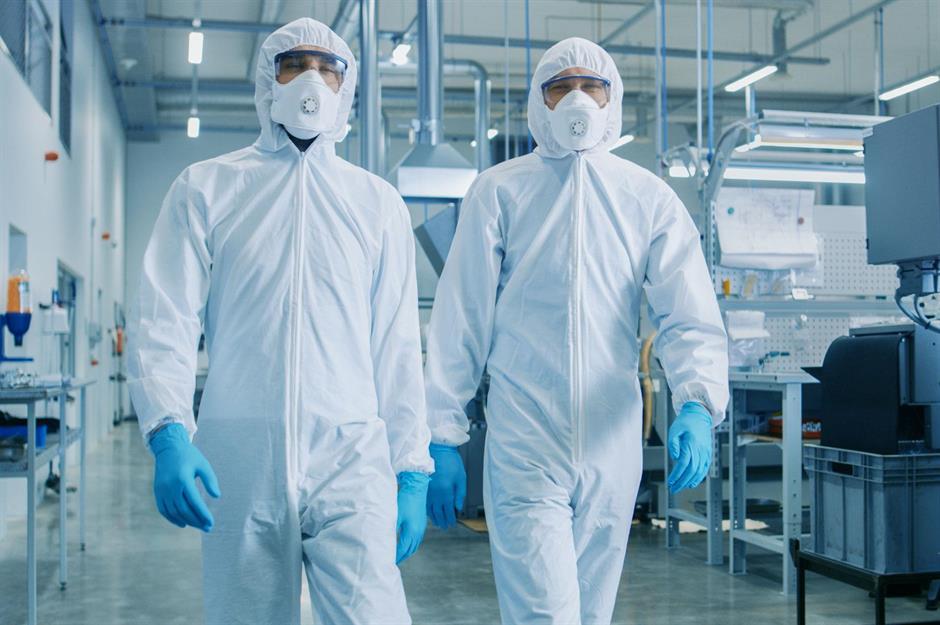
GM and Ventec Life Systems
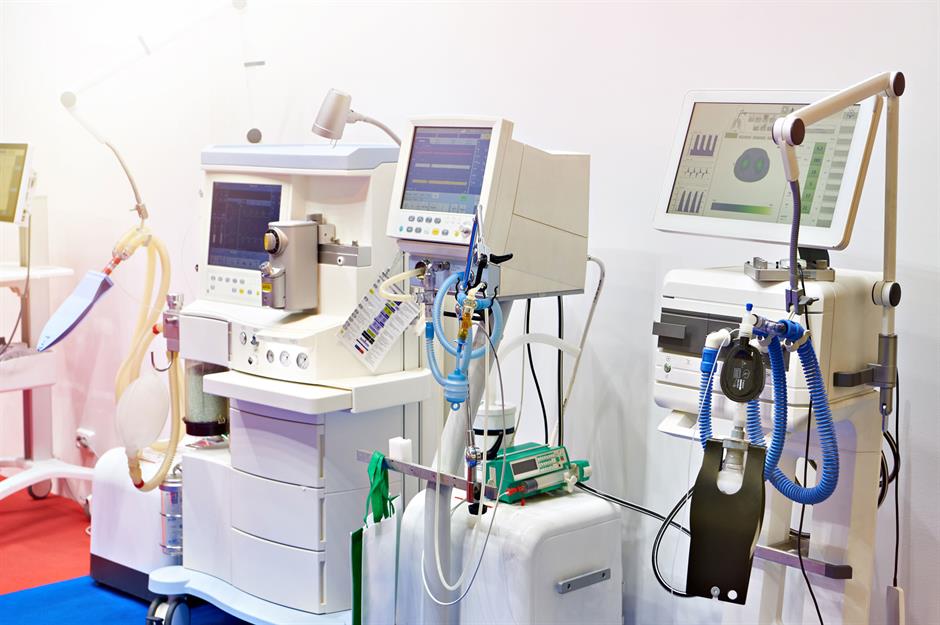
Ventilators are in short supply around the world, and many companies are scrambling to start producing or just get hold of the vital breathing devices. General Motors (GM) is partnering with medical equipment company Ventec Life Systems to manufacture an estimated 10,000 ventilators at its plant in Kokomo, Indiana, but has fallen foul of President Trump, who has criticized the automaker for “wasting time” on the project. Trump has gone as far as invoking the Defense Production Act to force the car firm into making the life-saving equipment more quickly.
Ford, 3M, GE Healthcare and UAW
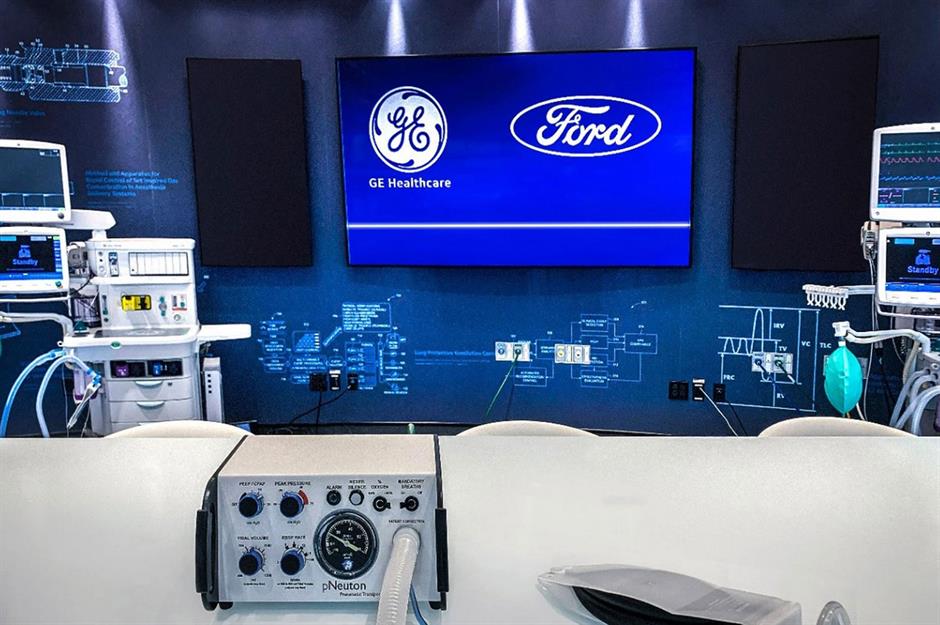
GM's rival Ford has hooked up with 3M, the company behind Post-it notes and Scotch Tape, to build respirators. 3M is the world's leading producer of N95 face masks and with Ford's help is massively boosting the production line of the protection essential. Ford is also working with GE Healthcare to scale up production of the firm's respirators and, together with UAW, is aiming to produce 100,000 face shields.
Sponsored Content
Tesla
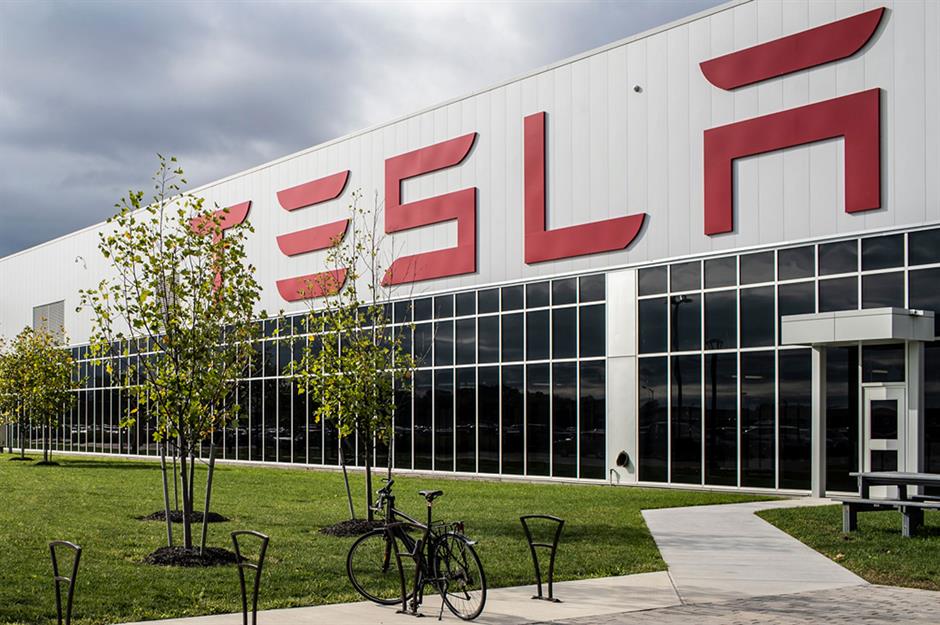
Staying with carmakers, Tesla is going all out to meet the fierce demand for ventilators. As well as agreeing to open the company's Gigafactory 2 in Buffalo, New York in order to fabricate the crucial devices, CEO Elon Musk is donating hundreds of ventilators sourced from China to hospitals at the epicenter of the global pandemic in New York City, and in other hotspots elsewhere in the US, along with tens of thousands of N95 masks.
SpaceX
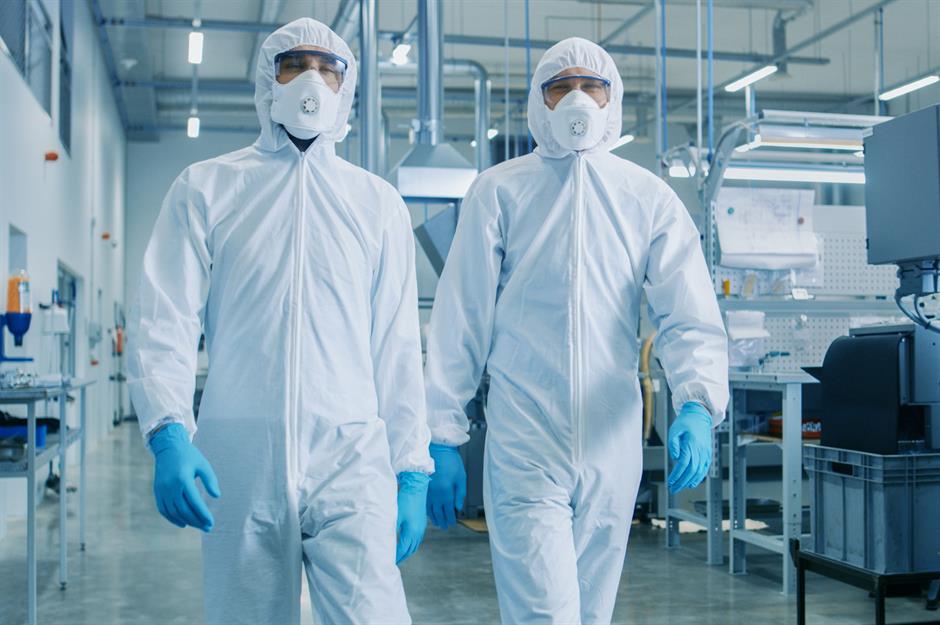
Elon Musk's other famous business SpaceX is committed to the fight against coronavirus too. The company, which is in the process of manufacturing hand sanitizers and face shields, has presented staff at the Cedars-Sinai Medical Center in Los Angeles with Tyvek hazmat suits, and is hosting blood donation drives at its Californian HQ and key locations.
Ventilator Challenge UK consortium
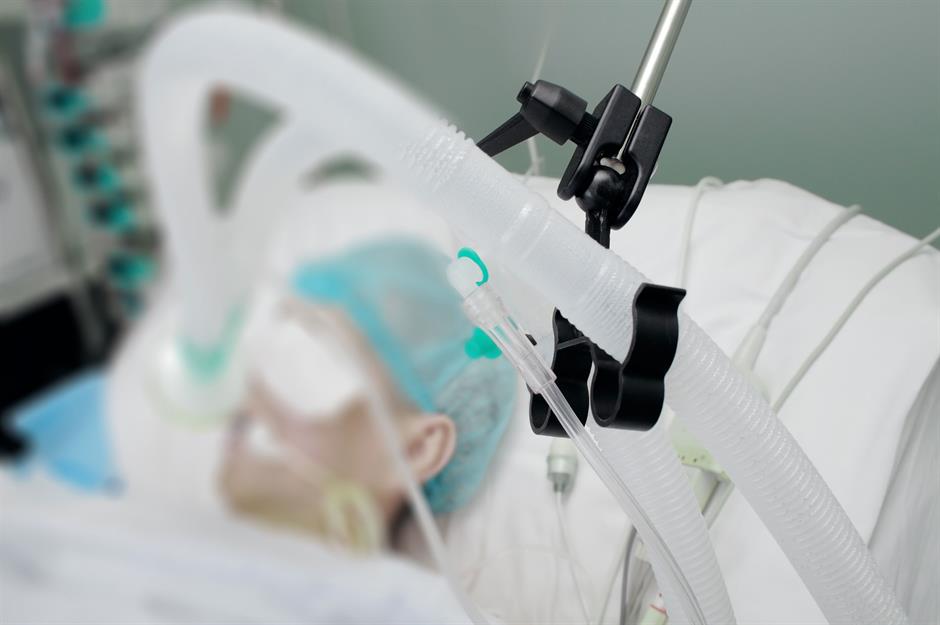
Sponsored Content
Mercedes Formula One
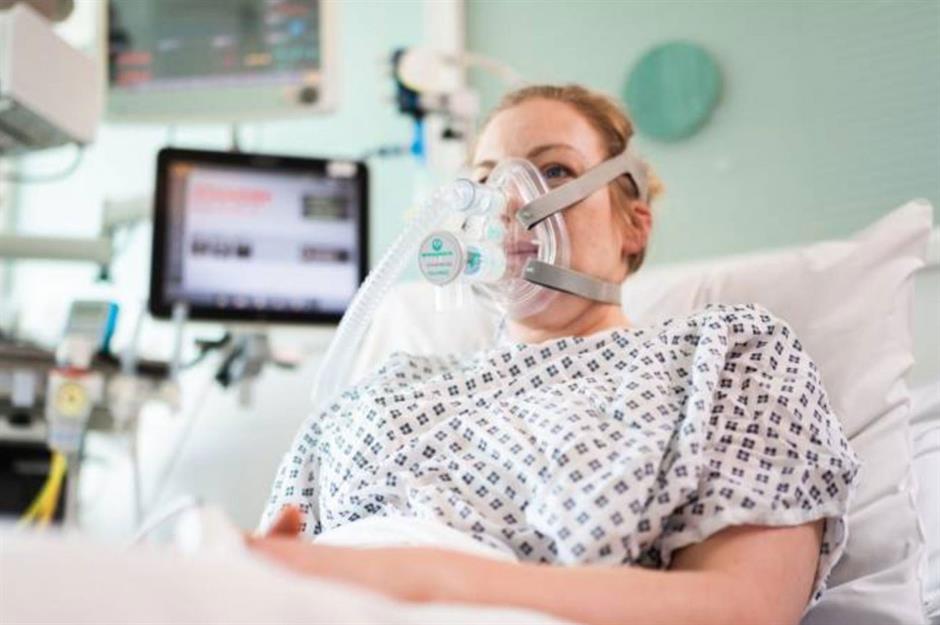
Working in conjunction with University College London, Mercedes Formula One racing engineers have completed an almost impossible task. In just one week the auto experts managed to create a new Continuous Positive Airway Pressure (CPAP) device, a breathing aid that conveys oxygen to the lungs without the need for a respirator, and is planning to produce up to 1,000 a day, having already delivered 40. The initiative is part of the wider Project Pitlane, a consortium of seven UK-based Formula One teams from Aston Martin to Renault which will pool their expertise to design and manufacture a range of ventilators and breathing aids.
Seat and Leitat
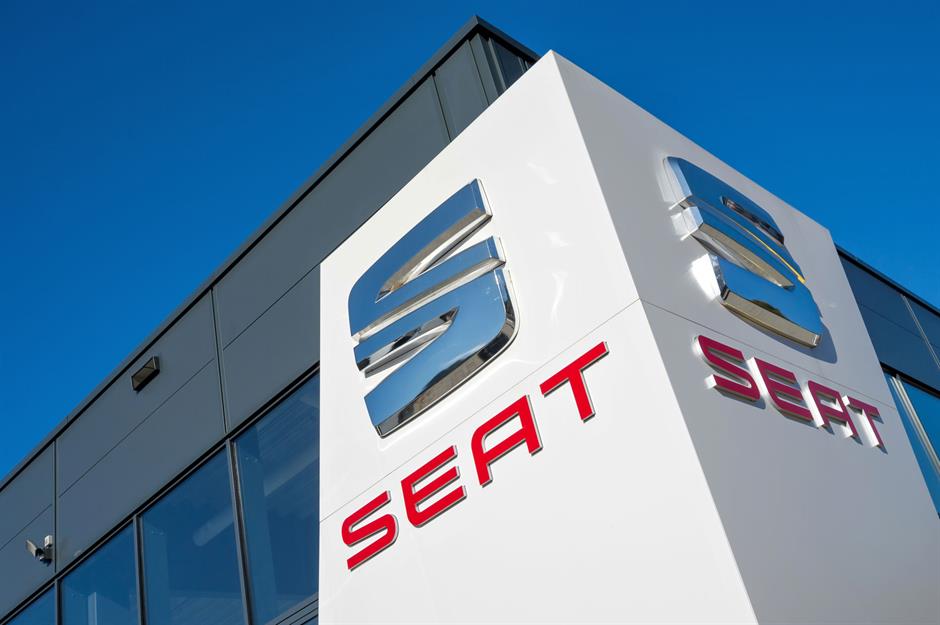
Spain is currently one of the countries worst affected by the Covid-19 outbreak and companies there are working hard to minimize the impact of the disease. They include automaker Seat and technology centre Leitat, which have got together with several Catalan public bodies to manufacture respirators using 3D printing technology.
Dyson
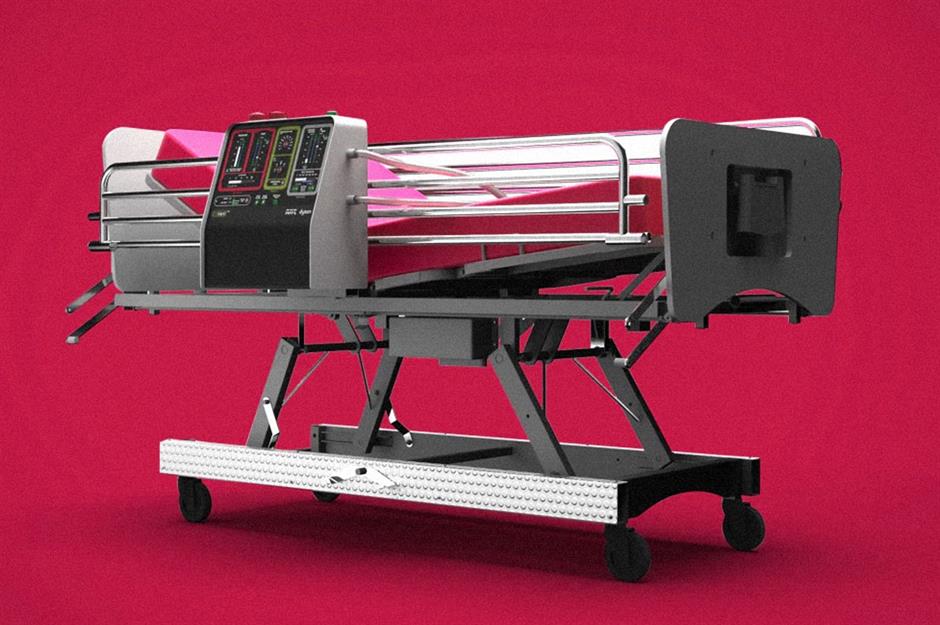
Sponsored Content
Breas UK
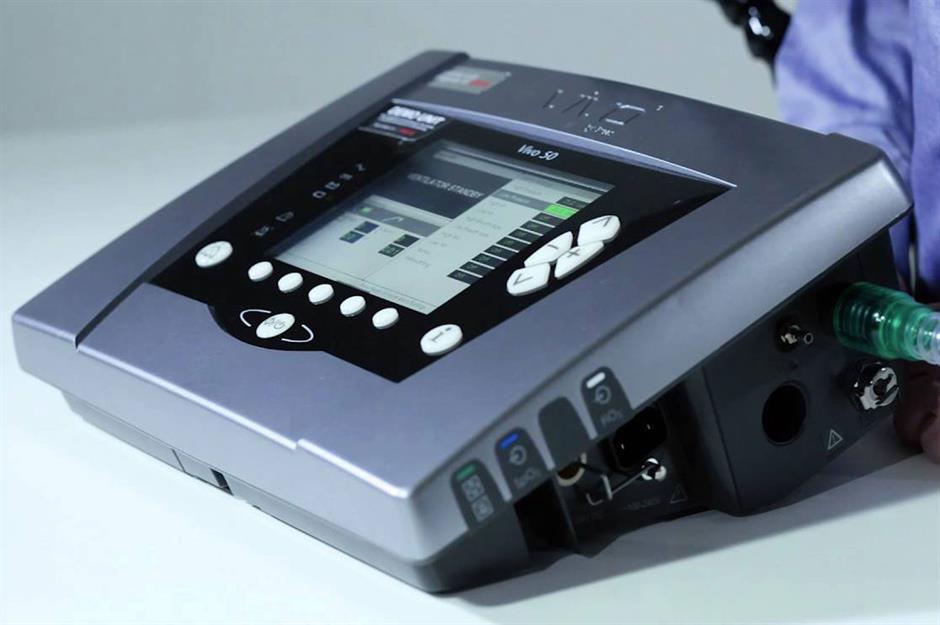
Breas UK is the sole existing company that builds ventilators in Britain, so it comes as no surprise the Swedish medical devices firm is doing all it can to produce its wares. The manufacturer has put staff on a seven-day working week and is tripling capacity at its factory in Stratford-upon-Avon.
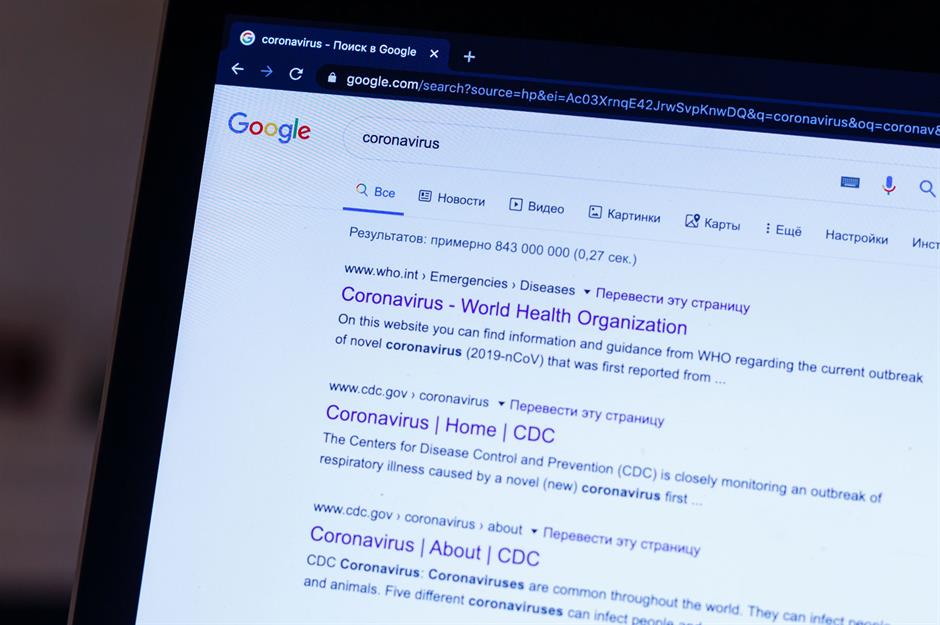
Companies are parting with vast sums of money to battle the virus. The biggest donor so far has been Google, which has committed a total of $800 million (£646m). Its bumper package includes $250 million (£202m) in ad grants for the World Health Organization (WHO) and government agencies to advertise on its products, and funding for a joint project with Magid Glove & Safety to produce millions of face masks.
Cisco Systems
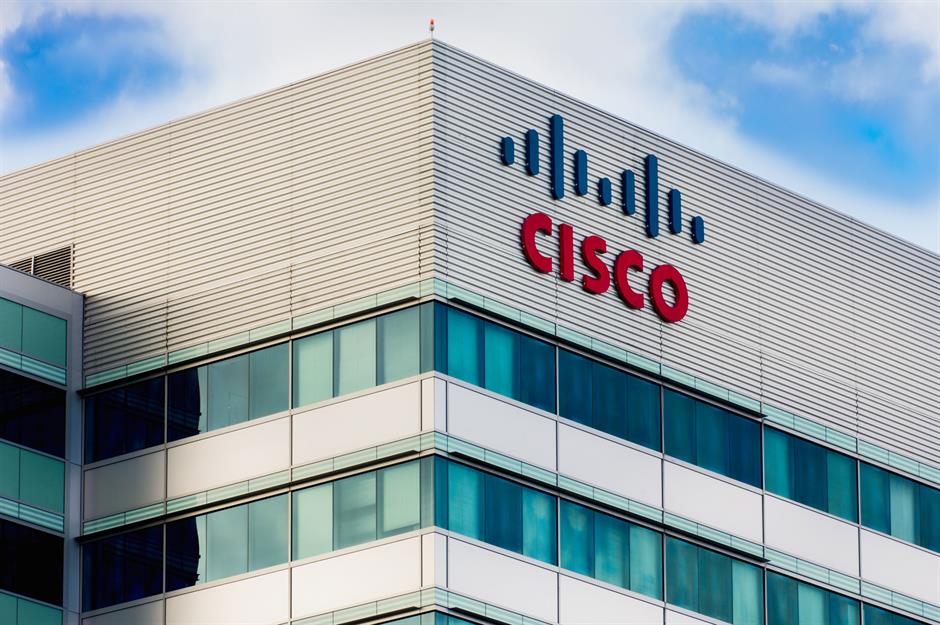
Cisco Systems hasn't been stingy either when it comes to funding the fight against Covid-19. On 22 March the San Jose-based tech company pledged a staggering $225 million (£181m). The donation, which CEO Chuck Robbins said is “in cash, in-kind and planned-giving”, will go towards supporting local and international efforts to combat the disease.
Sponsored Content
Alibaba
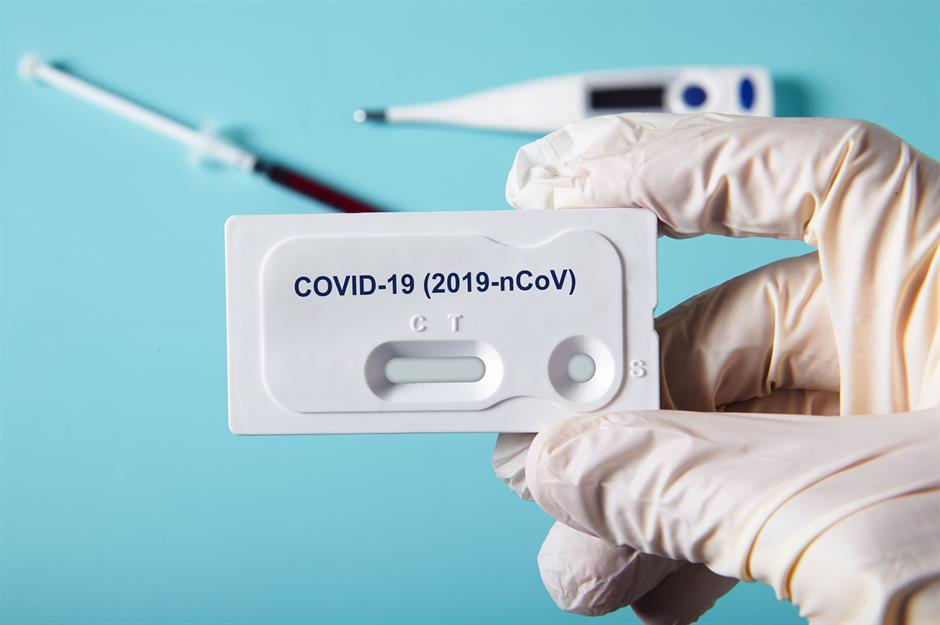
LVMH
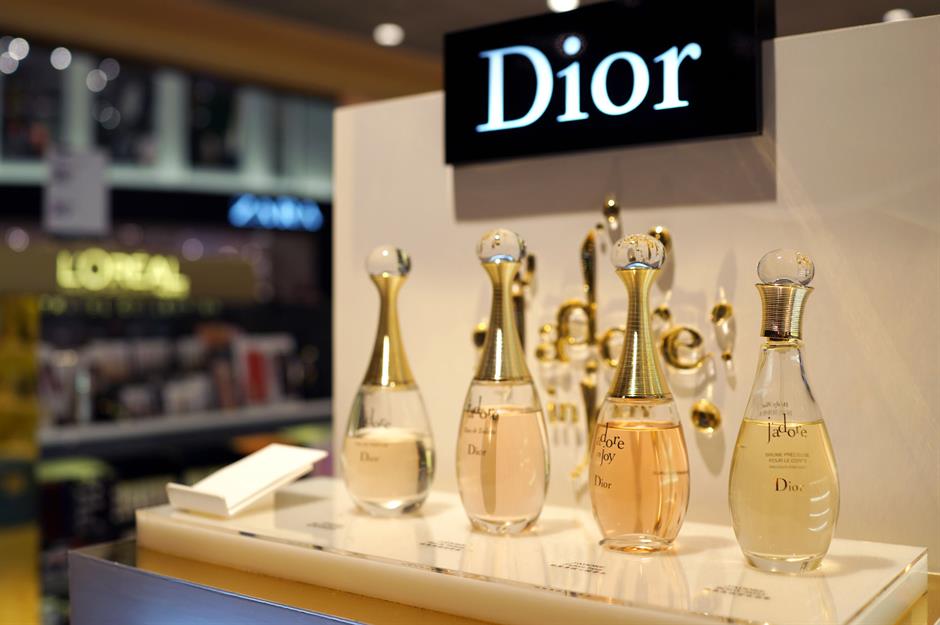
With supplies of hand sanitizer running dangerously low, companies, including names you might not expect, are lining up to formulate the in-demand product. Cue LVMH. The French luxury goods conglomerate has converted factories that normally produce Givenchy and Christian Dior fragrances into hand sanitizer plants. The group has also ordered 40 million surgical masks, which like the hand sanitizer will be donated to the French public healthcare system.
Procter & Gamble
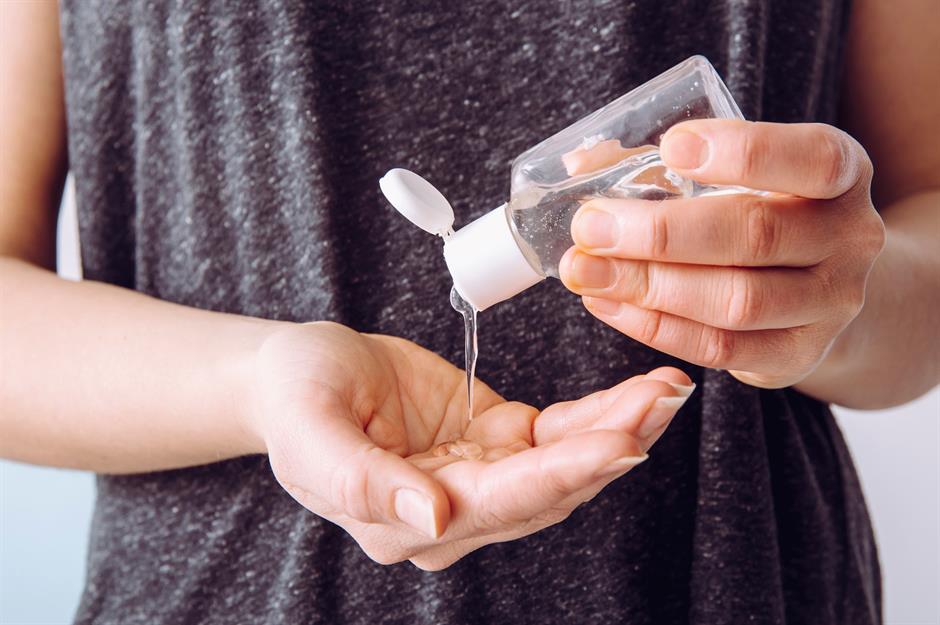
Procter & Gamble is in as good a position as any to produce hand sanitizer given the American consumer goods company already makes the product and, as expected, the firm has increased production of the essential. P&G is also making face masks and, along with the hand sanitizer, is distributing them to health authorities, hospitals and relief organizations.
Sponsored Content
Diageo
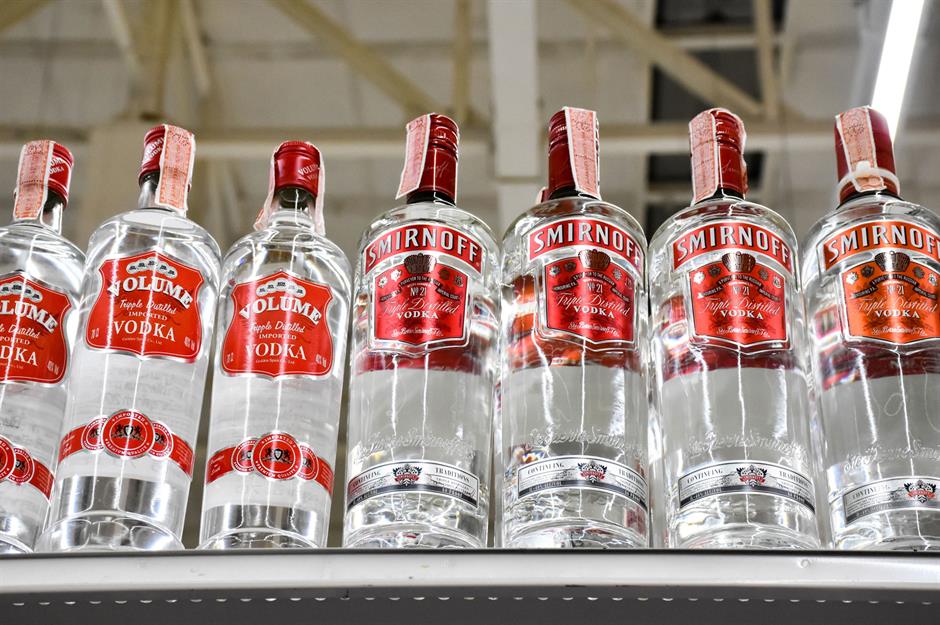
Alcohol is a key component of hand sanitizer, a fact that hasn't escaped the drinks companies of the world, which are busily handing over their supplies of ethanol, or tweaking distilleries and factories to manufacture the hygiene essential. Diageo, the maker of Guinness and Smirnoff, has donated 440,000 gallons (two million liters) of alcohol, enough for more than eight million 8.5-ounce (250ml) bottles of hand sanitizer.
Pernod Ricard
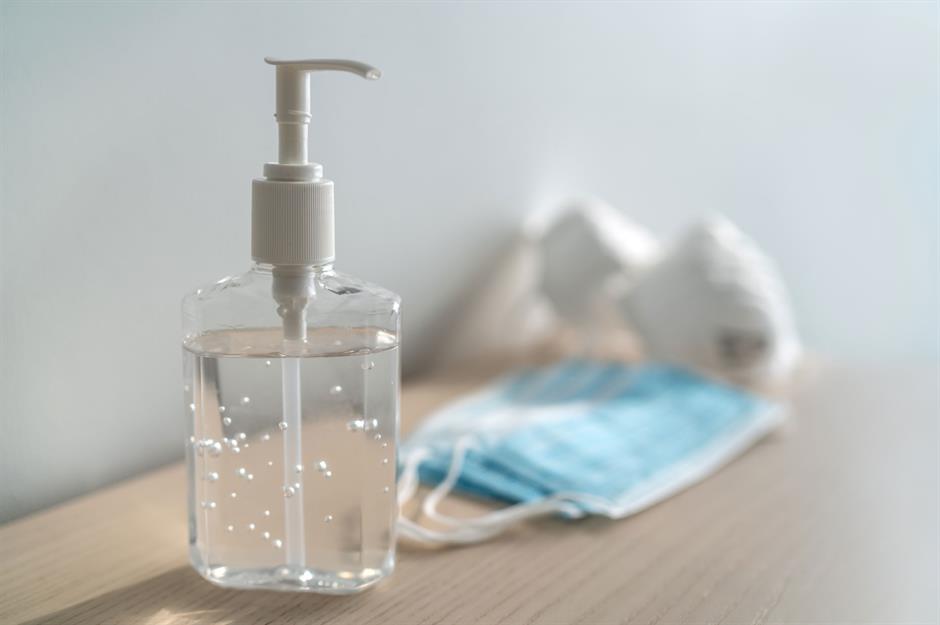
France's Pernod Ricard is donating ethanol and manufacturing the end product too. The parent company of Absolut vodka and Perrier-Jouët Champagne is donating enough pure alcohol to make 1.8 million bottles of hand sanitizer and repurposing distilleries in Spain and Ireland, which will serve as hand sanitizer factories.
Bacardi
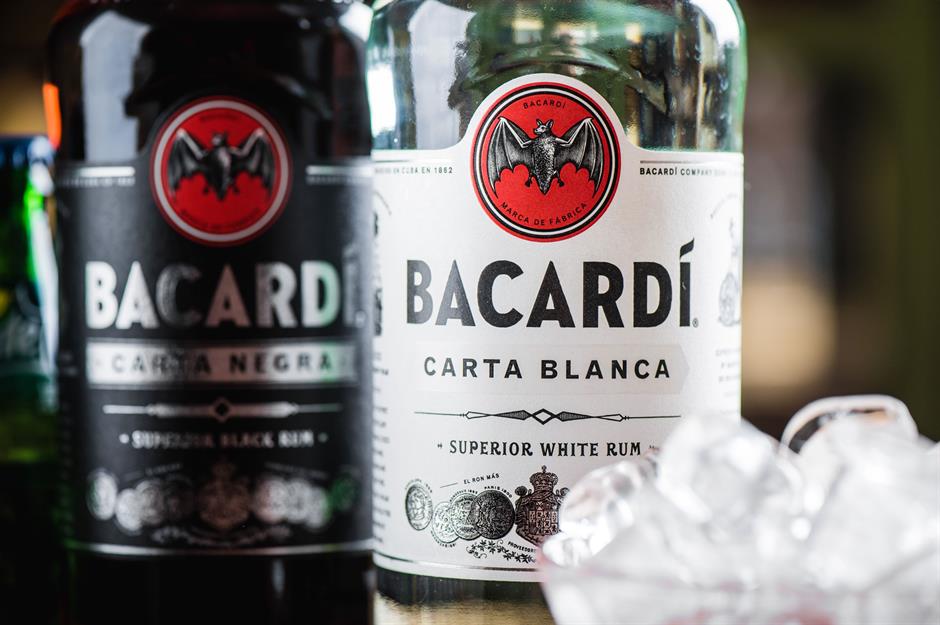
The maker of Bombay Sapphire gin, Patrón Tequila and the eponymous rum, Bacardi clearly has plenty of ethanol stashed away. The Bermuda-based liquor company has already supplied pure alcohol to make 1.7 million 10-ounce (295ml) bottles of hand sanitizer, equivalent to 242,000 gallons (1.1 million liters) of product, at distilleries in the US, UK, Mexico, Italy and France.
Sponsored Content
BrewDog
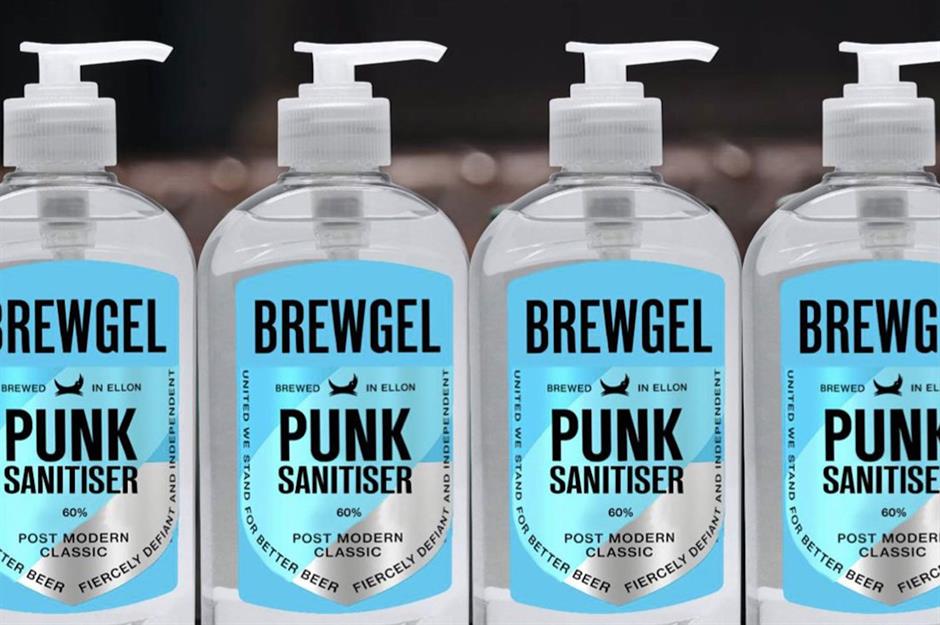
Ditto BrewDog. The British independent brewer is “working around the clock” to make hand sanitizer at its main facility in Aberdeenshire, Scotland using alcohol that would have been used for beer. The company has named the product Punk Sanitiser and is giving away bottles to the UK's National Health Service hospitals, local charities and other organizations in need.
Psychopomp & Circumstance
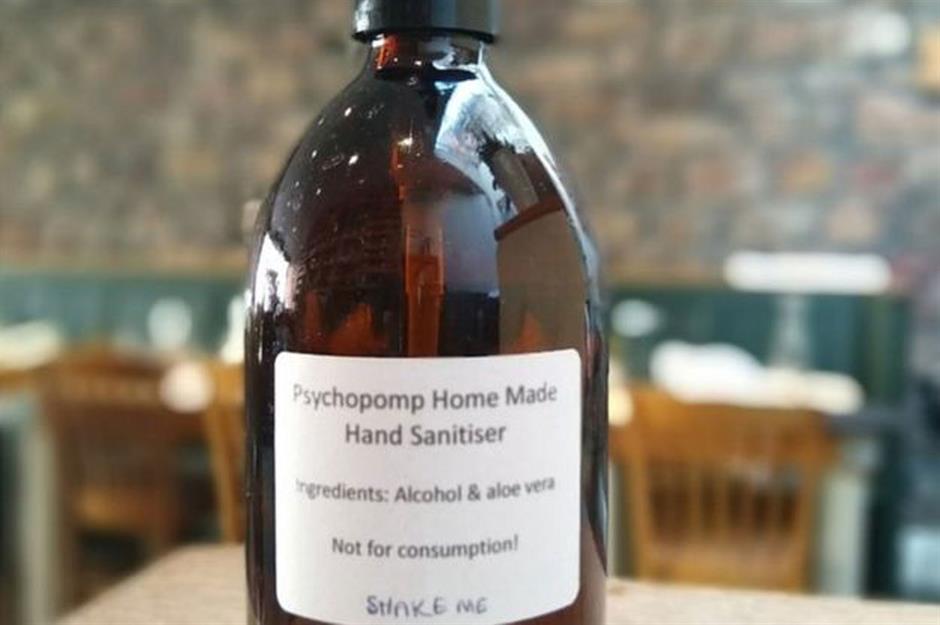
Boutique drinks companies are joining the effort as well. UK gin distillery Psychopomp & Circumstance, which is based in Bristol, is producing a high-end hand sanitizer made from 65% alcohol, aloe vera gel and aromatic gin botanicals, and dishing out freebie bottles to customers and vulnerable groups.
Unilever
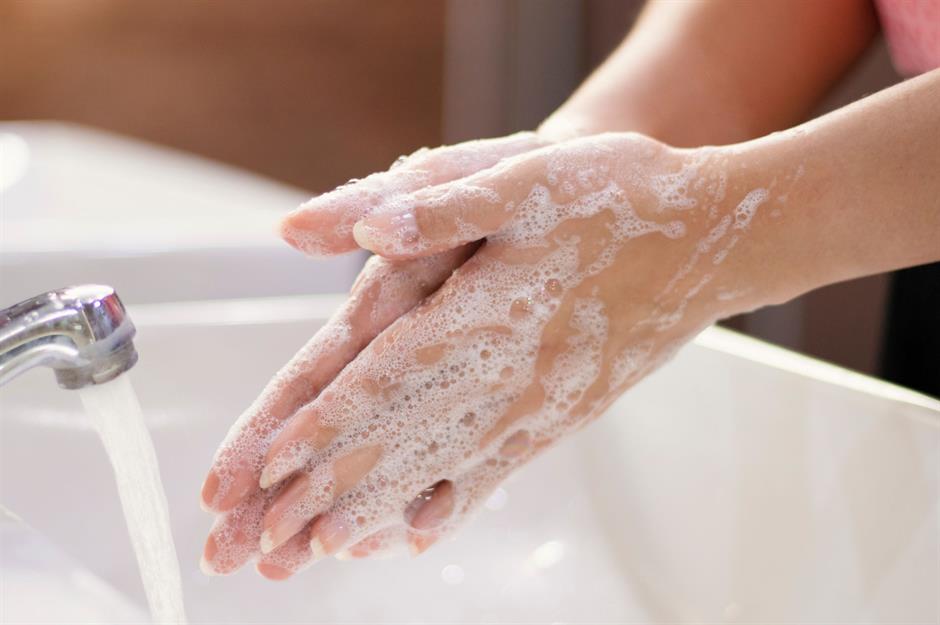
As we've all discovered, hand sanitizing, whether it's done using soap or an alcohol-based gel, is one of our best weapons against the virus. The world's biggest soapmaker, British-Dutch consumer goods company Unilever, has ramped up production and is giving away soap, hand sanitizer, disinfectant and food worth $109 million (£88m).
Sponsored Content
Ineos
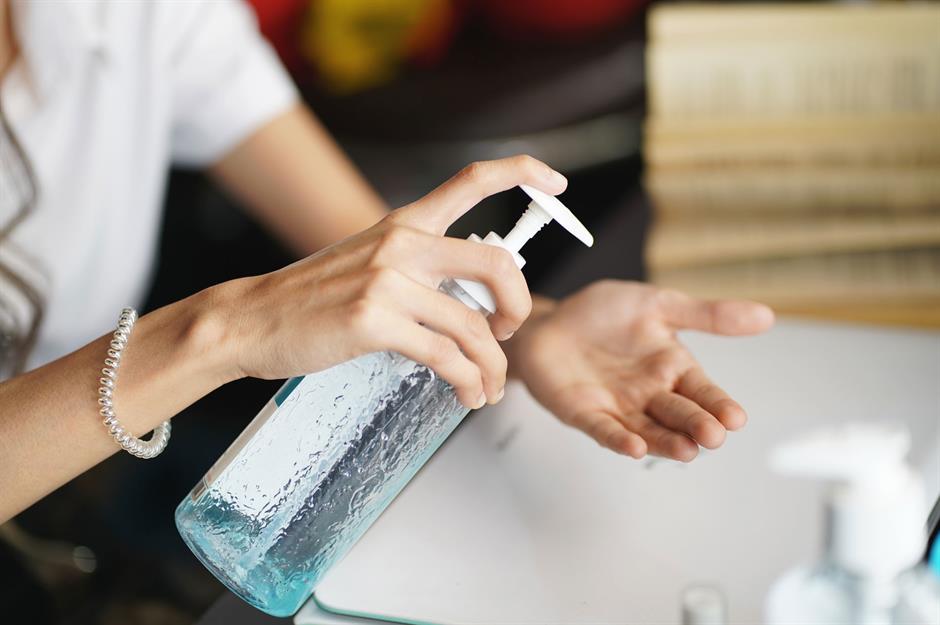
British petrochemicals company Ineos has also turned its attention to manufacturing hand sanitizer. The firm, which is one of the world's leading chemicals producers and has made its founder Jim Ratcliffe the richest man in Britain, has modified plants in the UK and Germany to make the product and is hoping to get one million bottles off the production lines each month.
Read more about Jim Ratcliffe and his journey from council house to Britain's richest man
Arkema
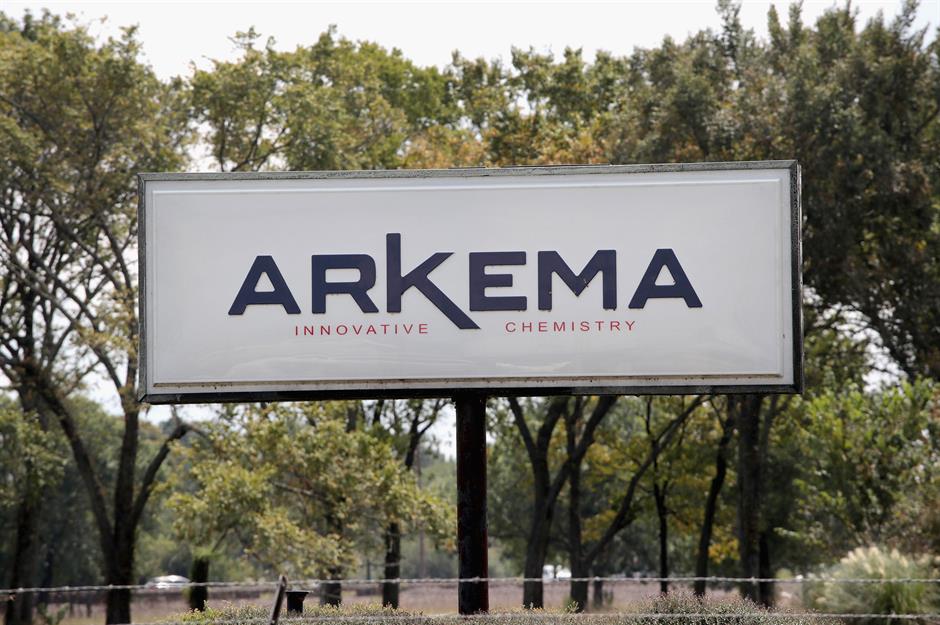
On the other side of the English Channel, French company Arkema has altered one of its production lines to make alcohol-based disinfectant. The chemicals company is endeavoring to produce 20 tonnes of the product per week at its Rhône Alpes Research Centre and will provide the fruits of its labor to health authorities in the country for no charge.
Huntsman
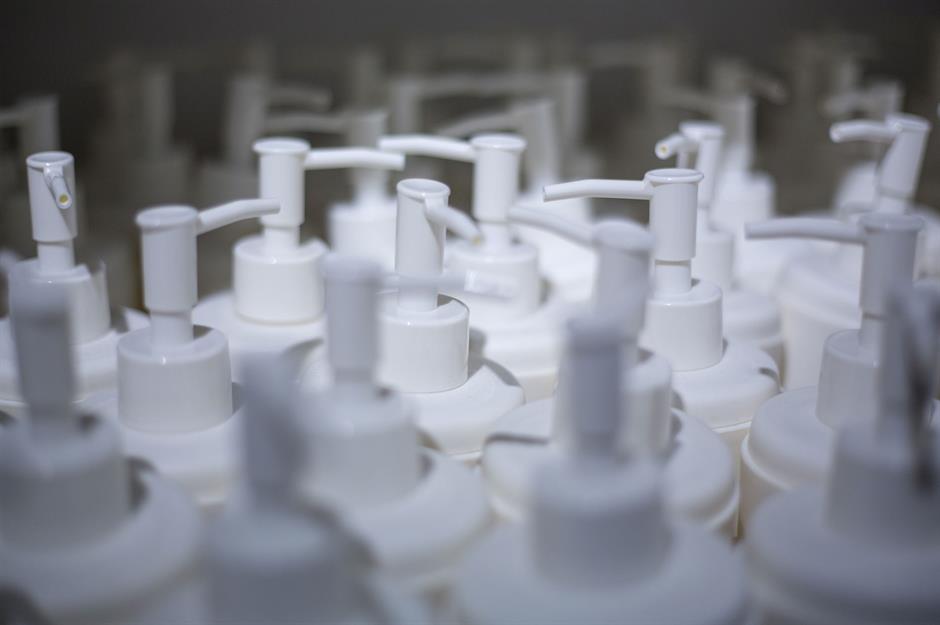
Huntsman has responded to a call from the Swiss government and is producing hand sanitizers at its facilities in Monthey, Switzerland. The American chemicals multinational is looking to make 50 tons of the product in total, and will donate every single bottle to hospitals and pharmacies in the country.
Sponsored Content
BASF
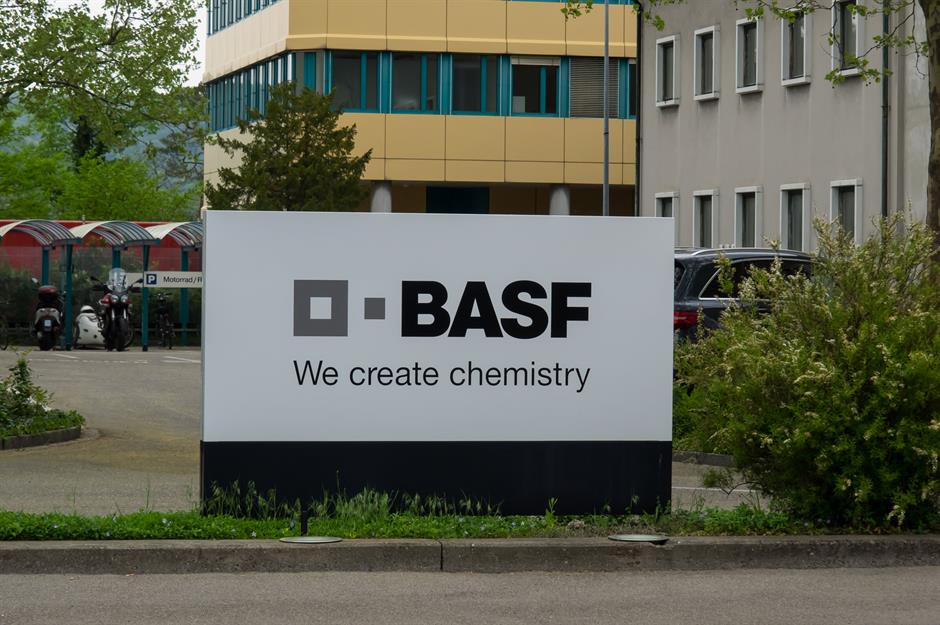
Germany's BASF is making hand sanitizers at its plant in Ludwigshafen. The world's biggest chemicals company by revenue is turning several metric tons of isopropanol into disinfecting gel. Bottles of the hand sanitizer are to be distributed free of charge to hospitals in the Rhine-Neckar region.
Dow
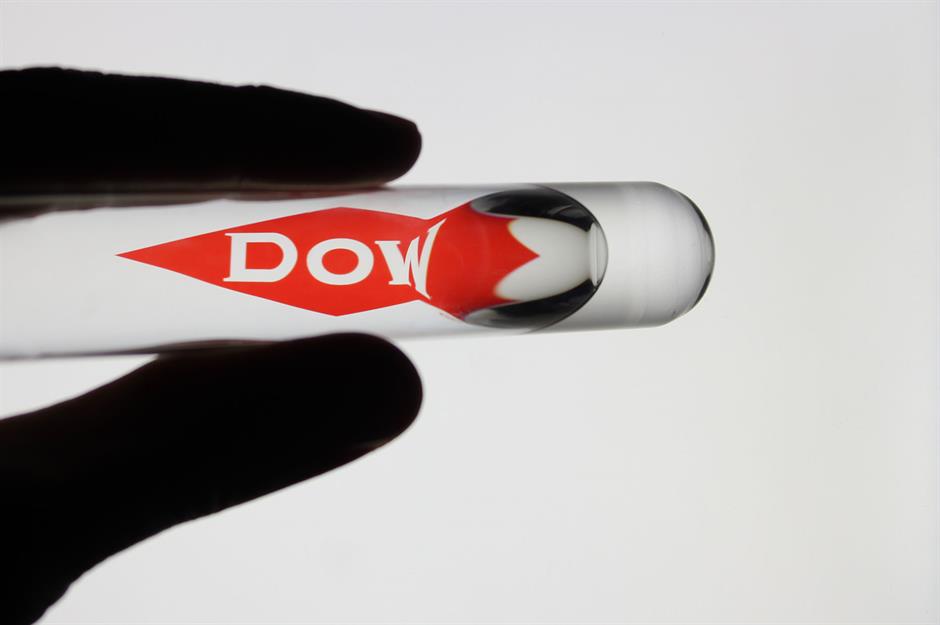
Dow has gone even further to support the health of the German people. The American chemicals firm intends to produce 300 tons of hand sanitizer per month at its facility near Hamburg. This equates to 600,000 bottles, all of which will be donated to local hospitals and pharmacies.
CropEnergies
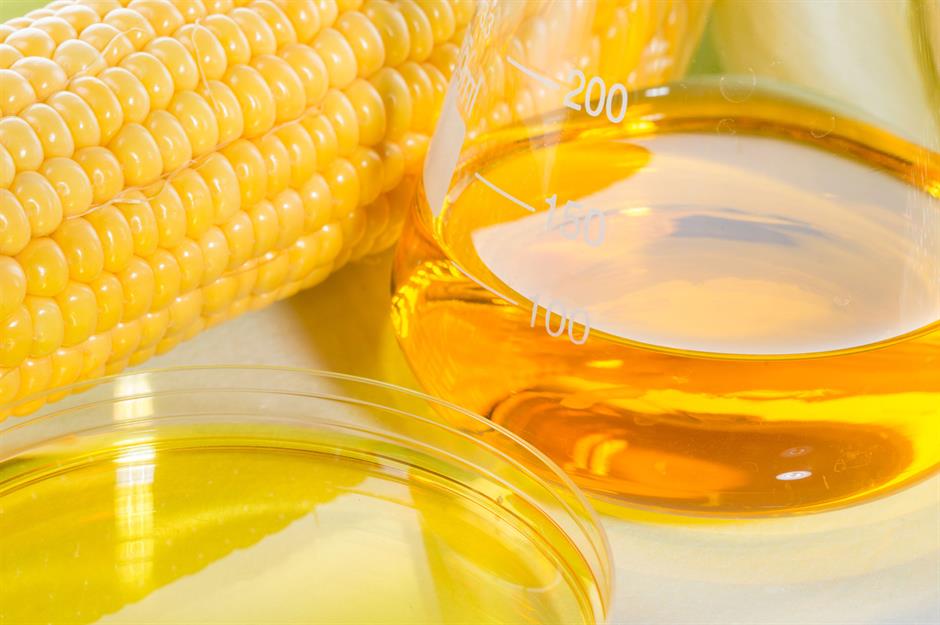
Ethanol is produced in colossal quantities by the biofuel industry. For the time being Germany's CropEnergies is keeping on top of demand, partly shifting from producing fuel alcohol to a more refined neutral alcohol that can be used to make hand sanitizer and other disinfectant cleansing products.
Sponsored Content
Shell
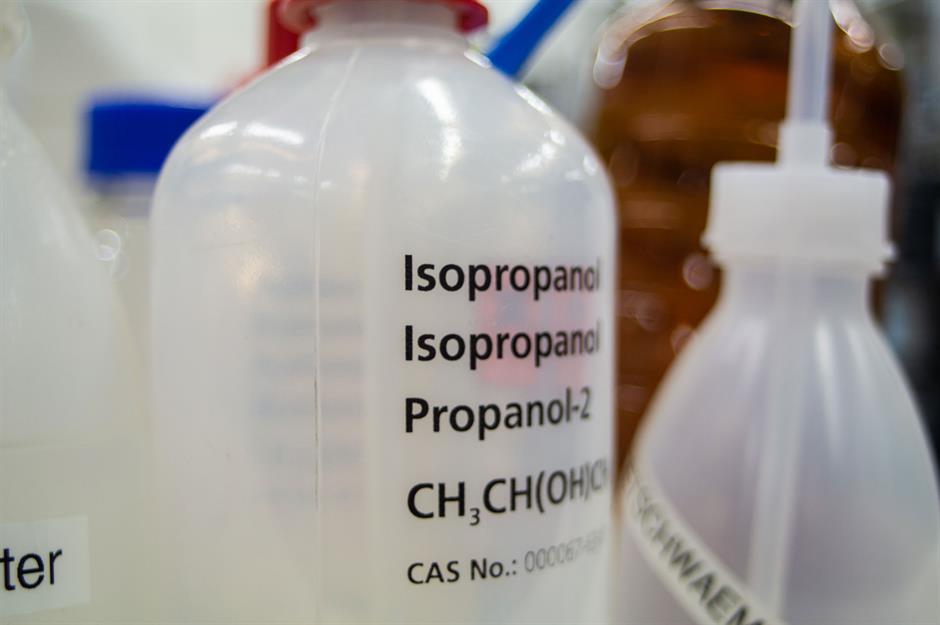
While the company isn't manufacturing a product to help slow the spread of coronavirus, Shell Chemicals, the petrochemicals arm of Royal Dutch Shell, has made 660,400 gallons (3 million liters) of crucial ingredient isopropanol available free of charge to companies that wish to produce hand sanitizers and other disinfectants.
BYD
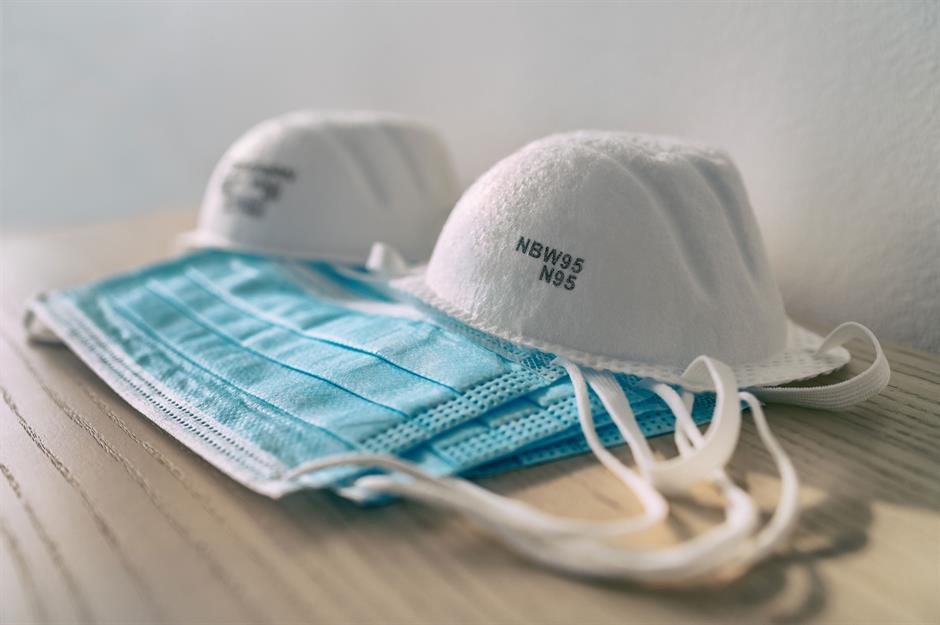
Companies around the globe are falling over each other to produce or donate protective face masks and other personal protection equipment (PPE). Leading the way is Chinese automaker BYD. After retooling its manufacturing facilities, the company has been able to churn out five million masks per day, which makes it the world's number one producer. The firm is also making 300,000 bottles of sanitizer gel each day.
DuPont
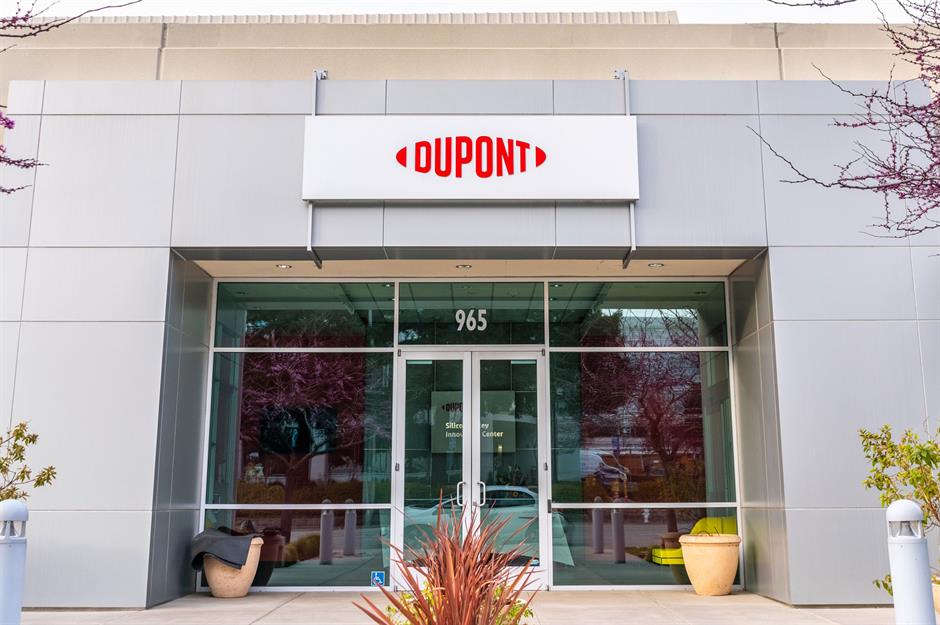
Sponsored Content
AstraZeneca
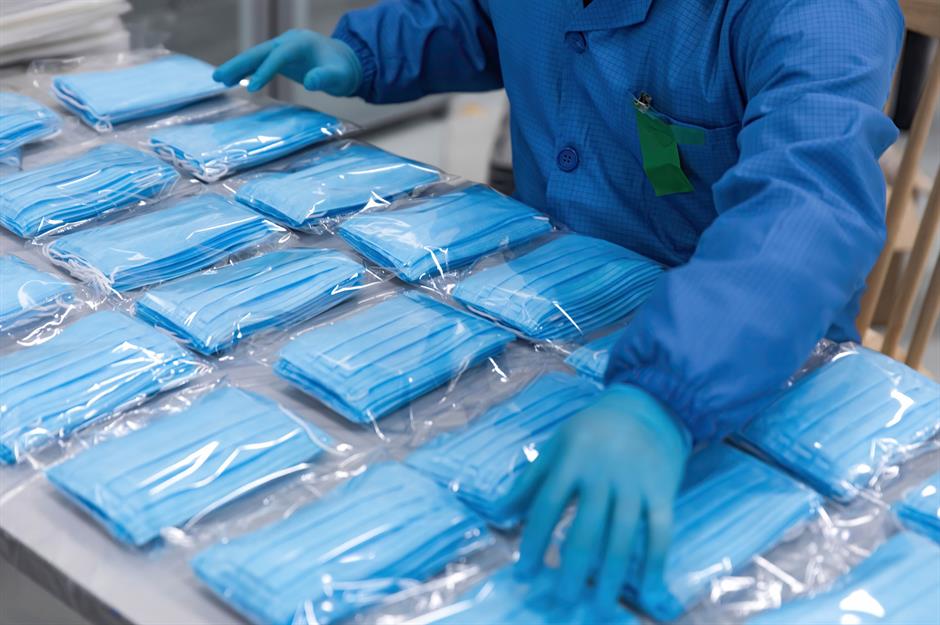
Kering
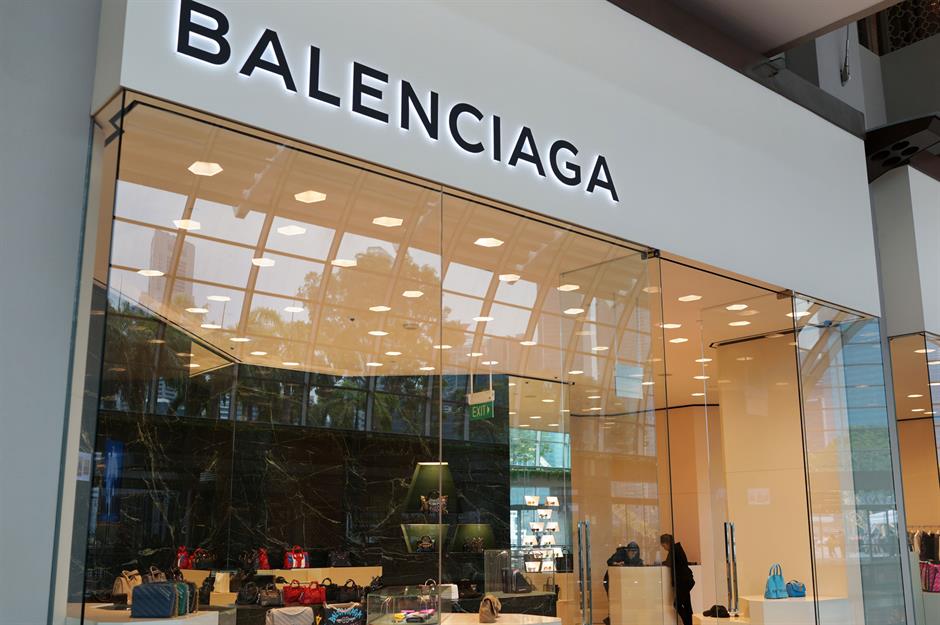
Gucci
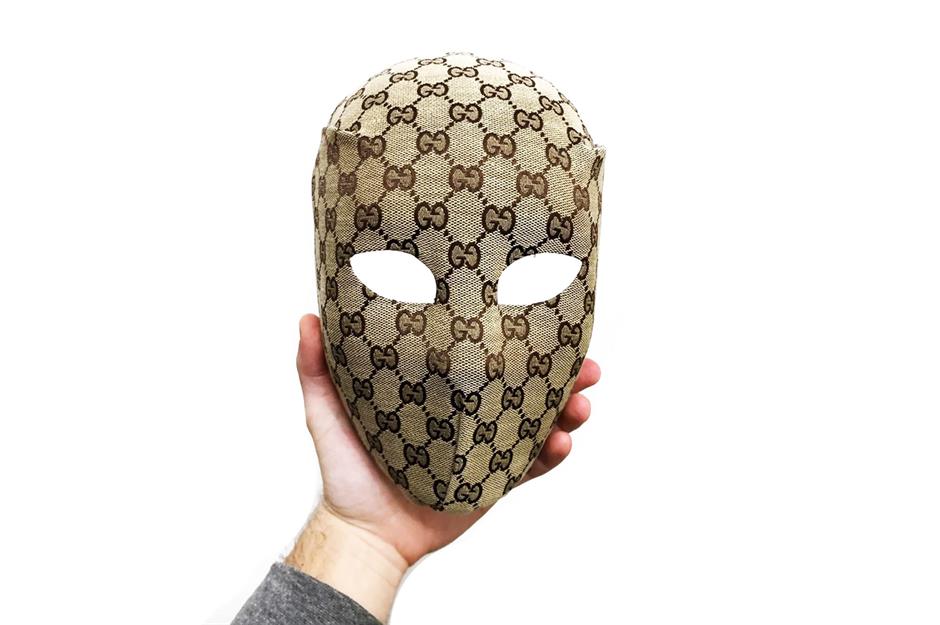
A Kering brand, Gucci has agreed to make 1.1 million face masks along with 55,000 pairs of medical overalls for use in Italy. The Florentine fashion house has also donated $1.1 million (£894k) to a fund set up to provide medical equipment to healthcare workers in the country.
Sponsored Content
Ralph Lauren
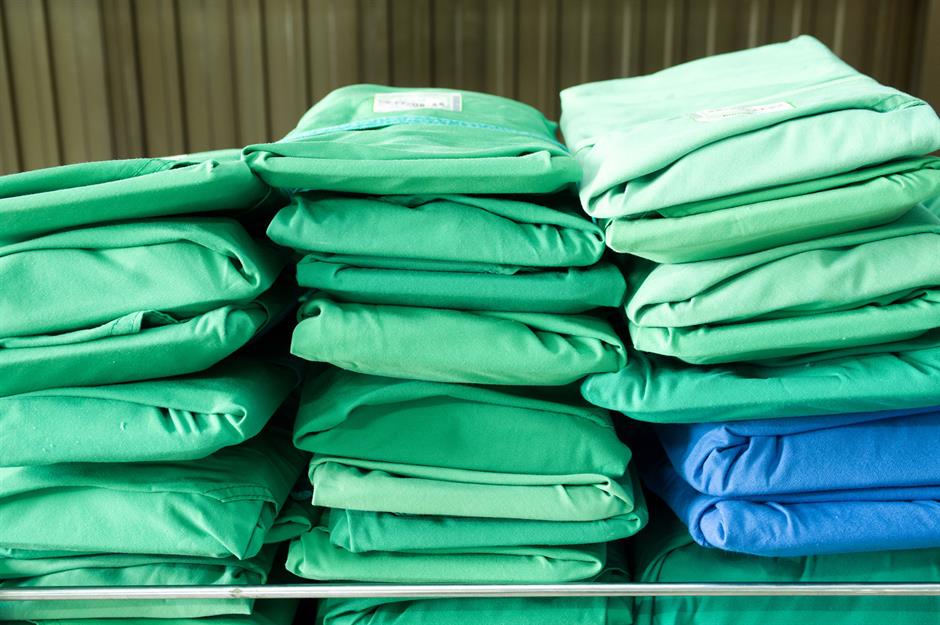
Ralph Lauren has mounted a strong response to the Covid-19 outbreak. In addition to donating millions of dollars to coronavirus charities and funds, the all-American fashion company is supporting healthcare professionals by producing 250,000 face masks and 25,000 hospital gowns in the US.
Prada
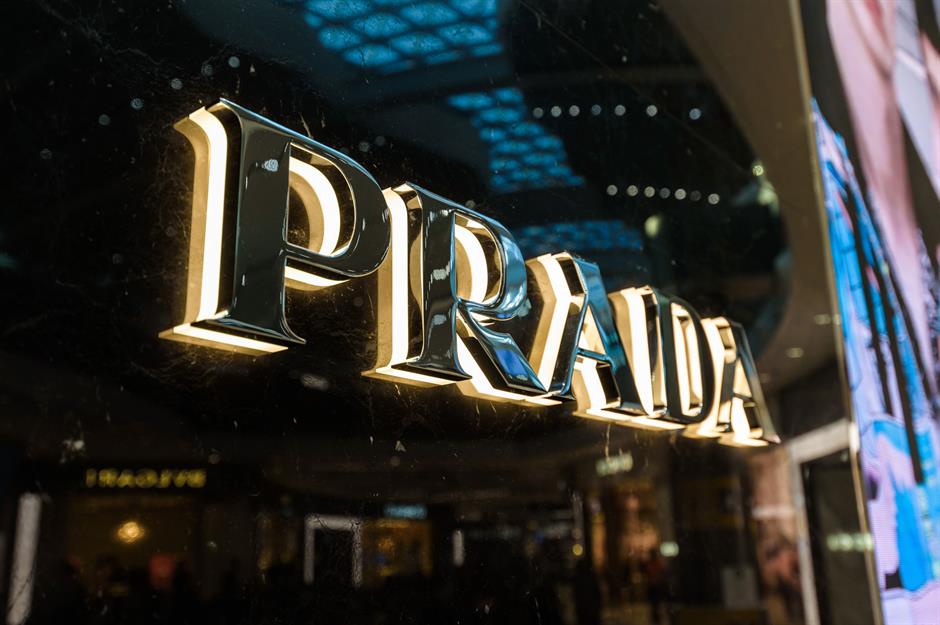
Over in Milan, Prada has swapped achingly expensive fashion pieces for practical PPE. The prestigious fashion retailer started producing protective clothing and accessories back in mid-March, and expects to deliver 110,000 face masks and 80,000 hospital gowns from its factory in Umbria, Italy.
Armani
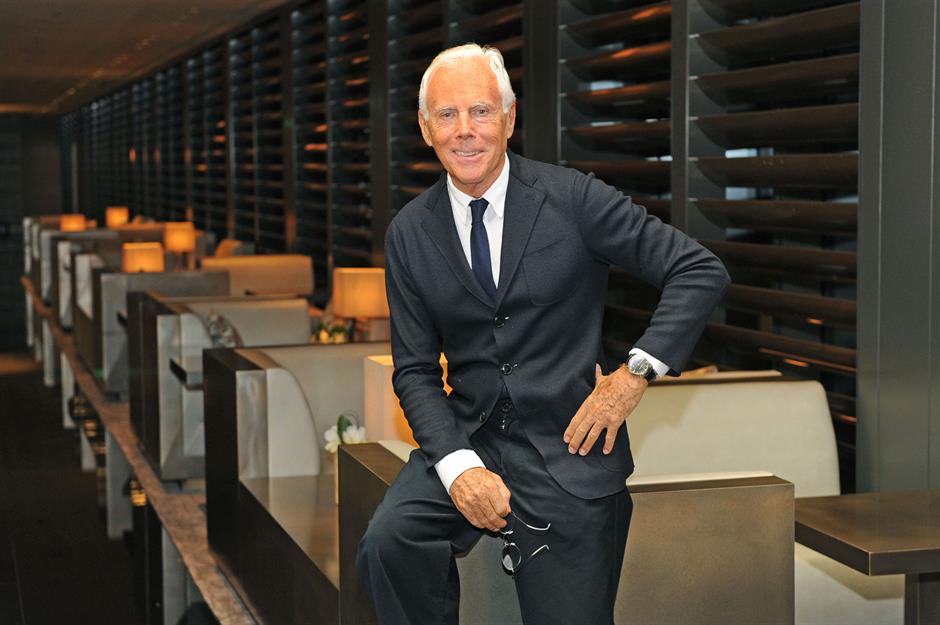
Italy will soon be awash with designer company-made hospital gowns if the country's luxury fashion businesses have their way. Armani is making the clinical clothing essentials at every single one of its factories. Individually, designer Giorgio Armani has donated $1.4 million (£1.1m) to a number of Italian hospitals and organizations fighting the Covid-19 outbreak.
Sponsored Content
Moncler
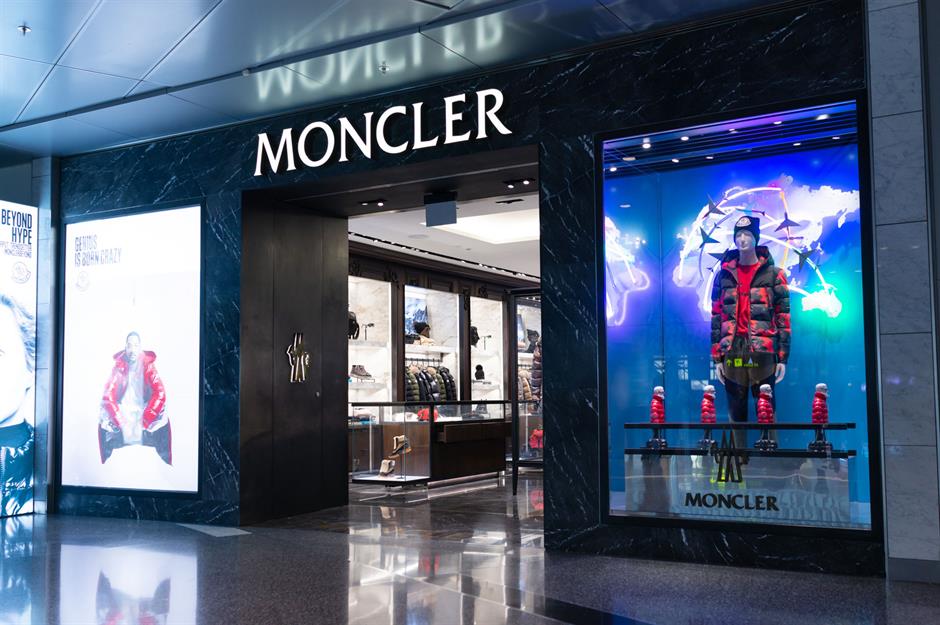
Best known for its deluxe skiwear, Moncler has written a fat check towards the construction of a new hospital in Milan, the city where the company is based. The $11 million (£8.9m) donation will go a long way towards providing the additional 400 intensive care beds the new facility will house.
Dolce & Gabbana
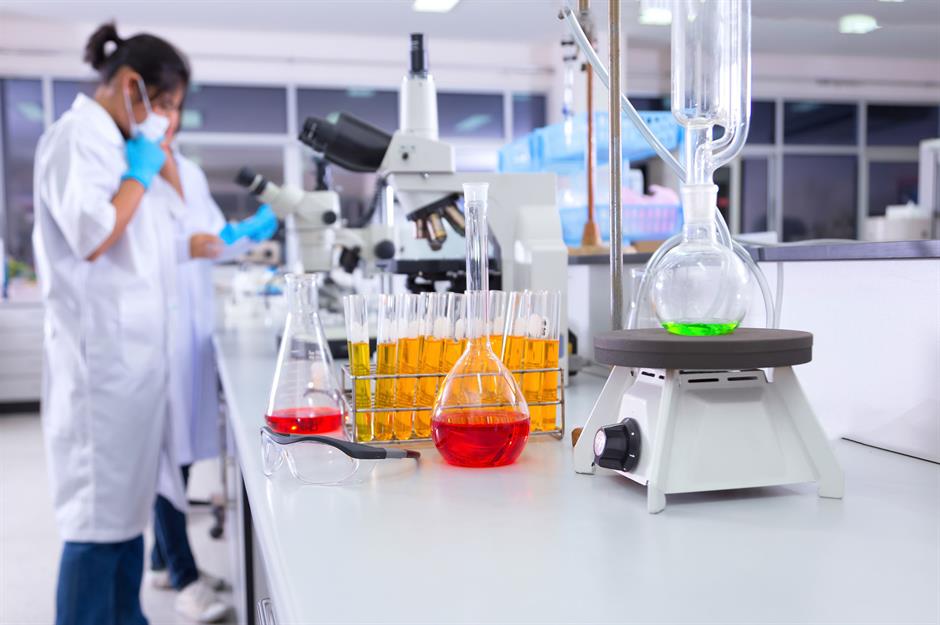
Burberry
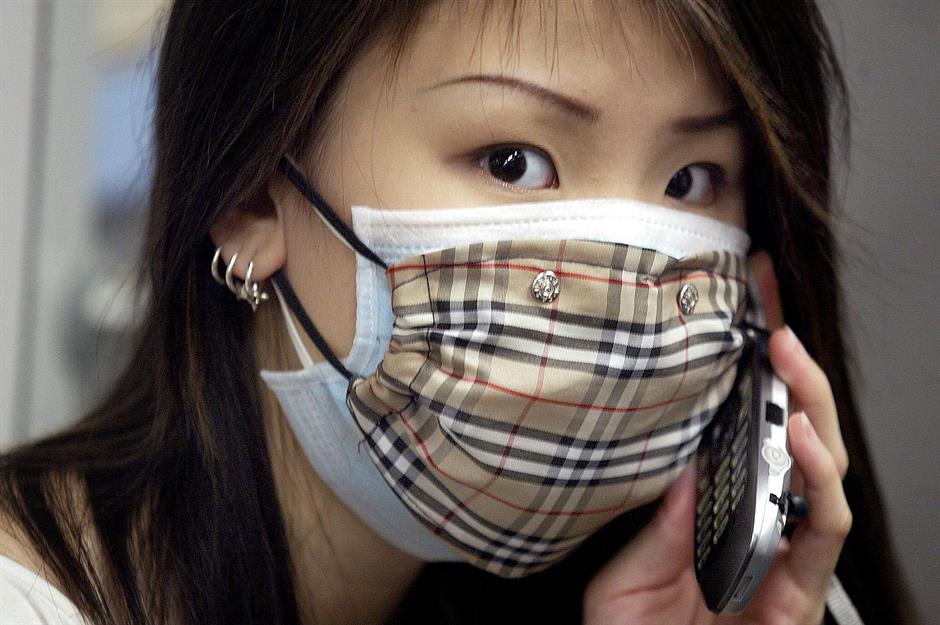
On top of sourcing 100,000 face masks for the UK's NHS, Burberry is retooling its trench coat factory in the English town of Castleford to make face masks and non-surgical gowns. Besides this, Britain's biggest high-end fashion retailer is funding research into a coronavirus vaccine and donating to charities working to alleviate food poverty in the UK.
Sponsored Content
Chanel
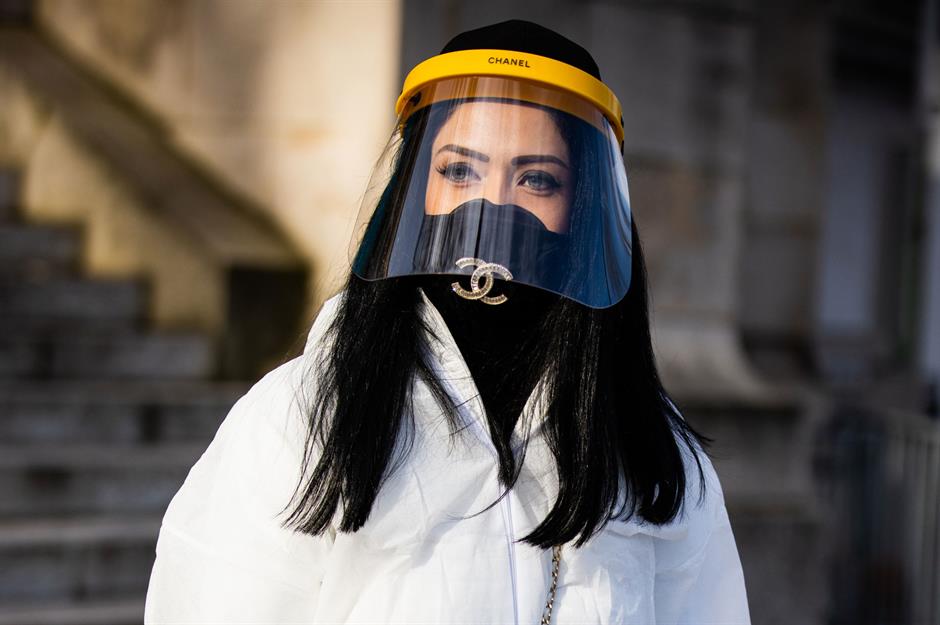
Chanel announced on 29 March that its workshops would go from making exquisite haute couture pieces to producing protective masks and “blouses”, and has already garnered approval for the project from the French authorities.
H&M
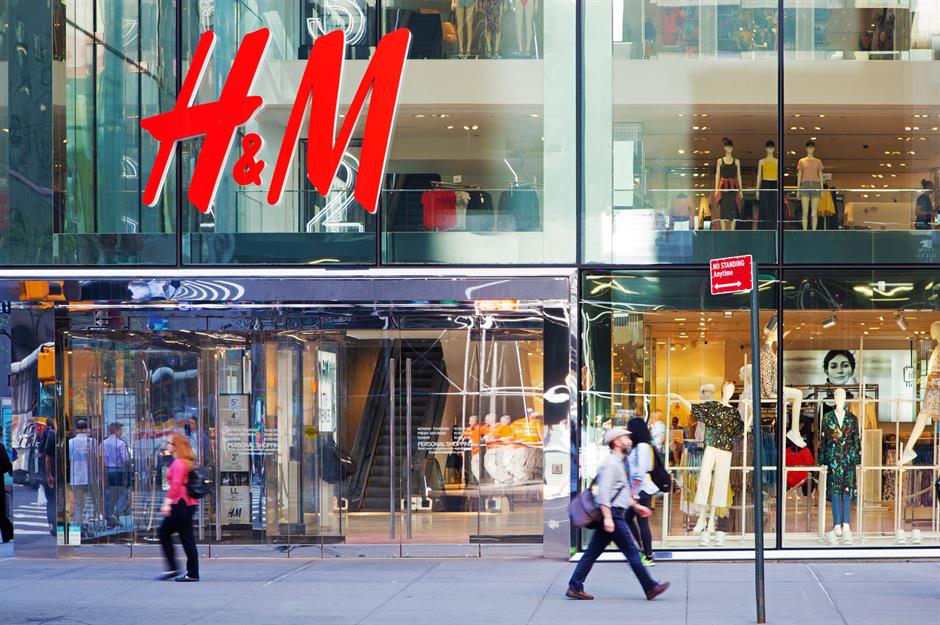
Big retailers haven't disappointed with their reaction to the coronavirus crisis either. H&M has worked magic on its supply chain with a view to supplying PPE for healthcare workers, donated $500,000 (£405k) to the Covid-19 Solidarity Response Fund and is allowing aid organizations such as the International Red Cross to use its social media channels.
Inditex
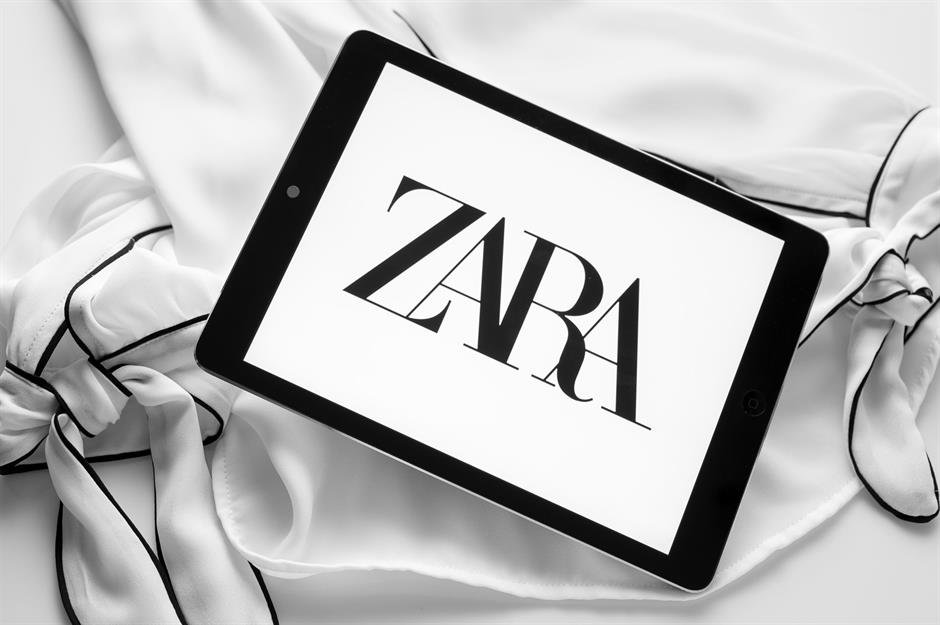
Sponsored Content
Superfeet
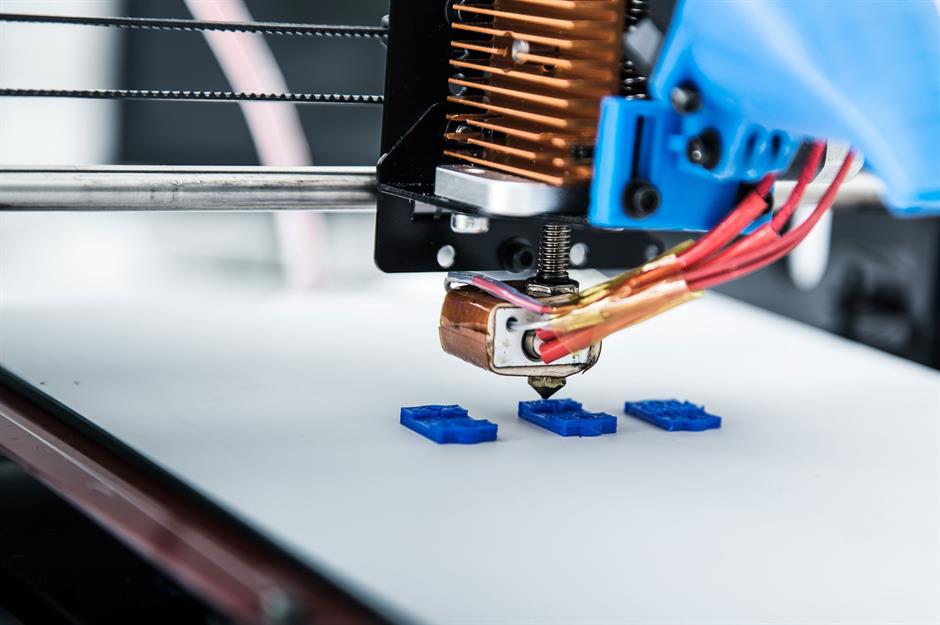
As 3D printing technology is super-versatile, the process is ideal for producing medical equipment quickly and cheaply. For this reason US insole manufacturer Superfeet is offering manufacturers and inventors access to its HP Multi Jet Fusion printers, and is creating a production line devoted to medical products.
Hanes
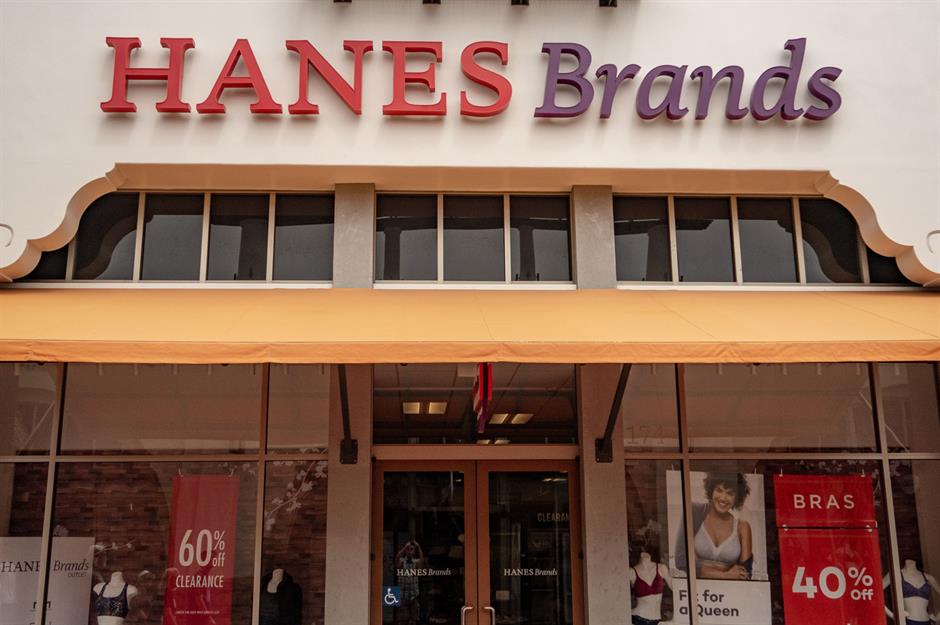
Goldman Sachs
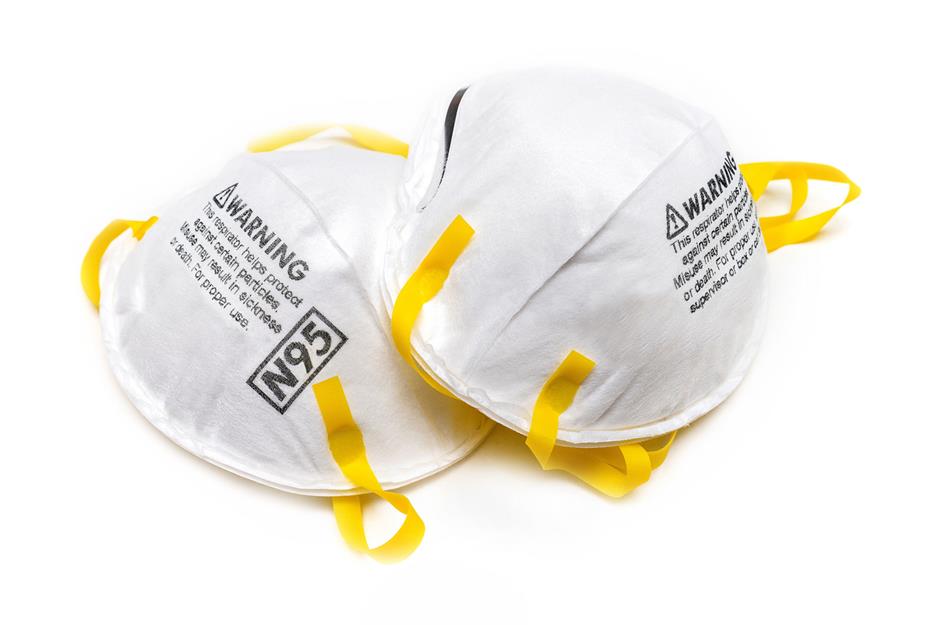
Investment bank and financial services company Goldman Sachs has supplied the states of New York and New Jersey with 600,000 N95 face masks. The Wall Street company is supporting the fight against Covid-19 on a global level too, having donated $1 million (£808k) and counting to charities and other benevolent organizations worldwide.
Sponsored Content
Royal Mint
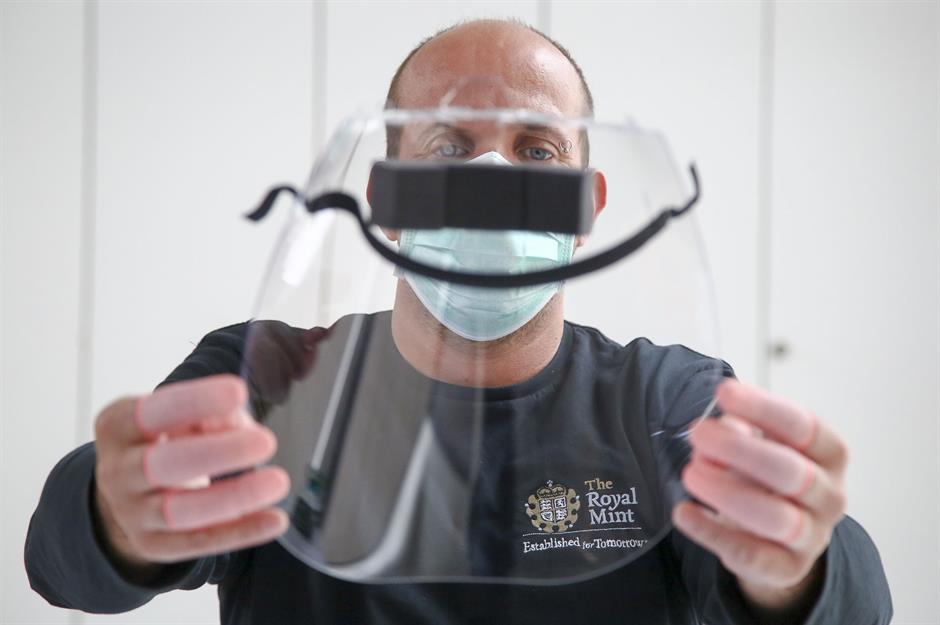
Engineers at the UK's Royal Mint HQ in Llantrisant, Wales are far more used to designing coins but their transferable skills have come in especially useful during the coronavirus pandemic. A team at the mint has created a protective visor for frontline NHS workers, which is already in mass production.
Canopy Growth
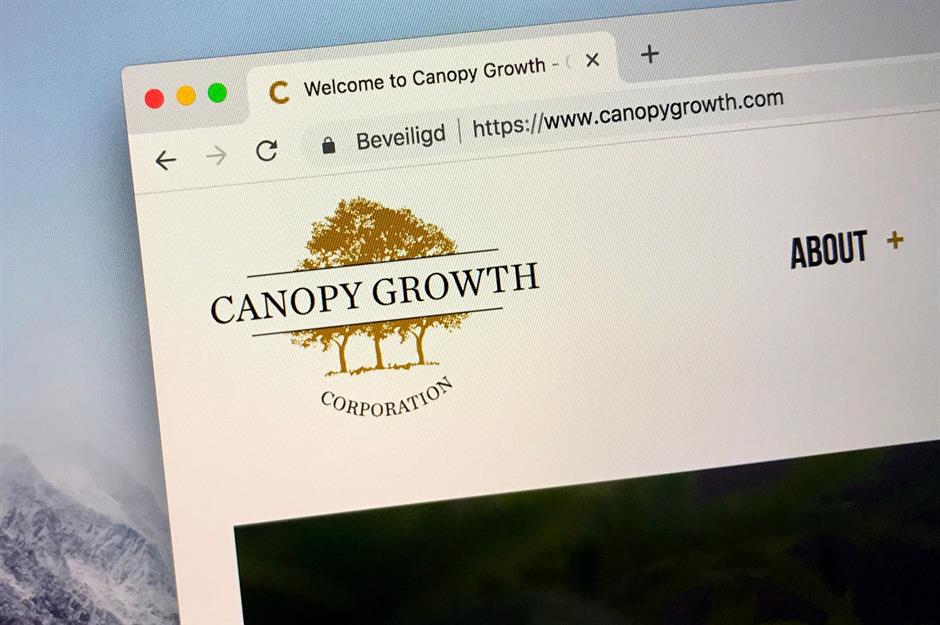
Canada's leading legal cannabis companies have come forward to offer help during the outbreak. Canopy Growth is donating PPE items like face masks and gloves to hospitals in the country and other pot firms including Aphria, CannTrust Holdings and Village Farms International are looking to follow suit.
INKSmith
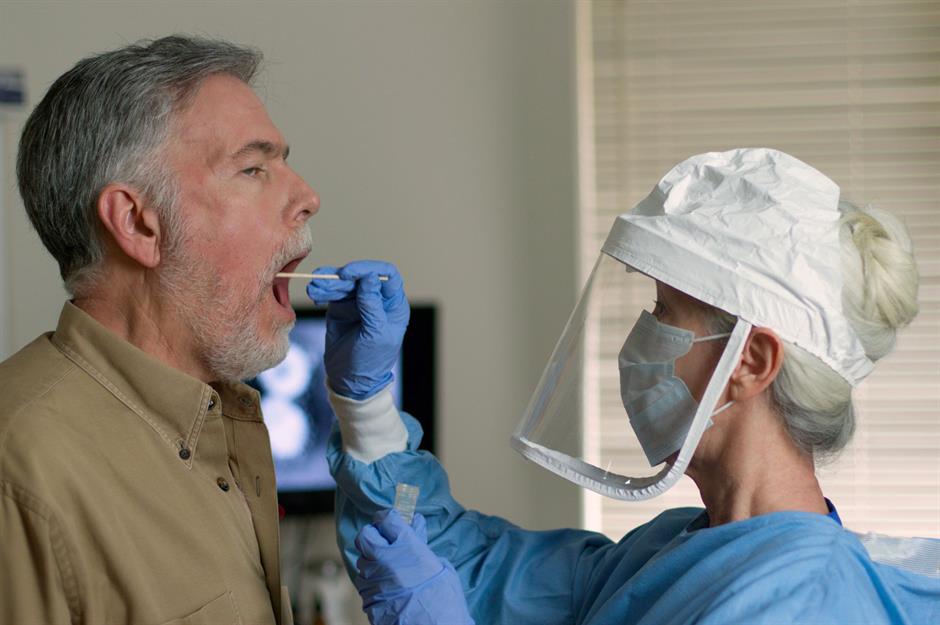
Canadian start-up INKSmith has reached outside the box and completely changed what it was doing – making design and tech tools accessible for children – to produce face shields. Demand is off the scale and the company has hired 100 new staff to get on top of the influx of orders.
Sponsored Content
Nike
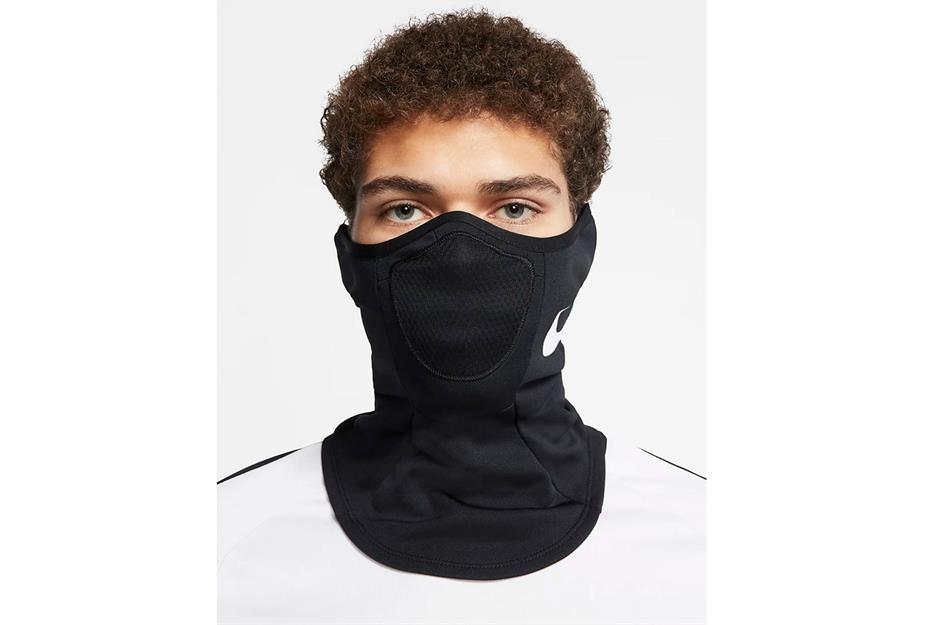
Santini and Kitsbow
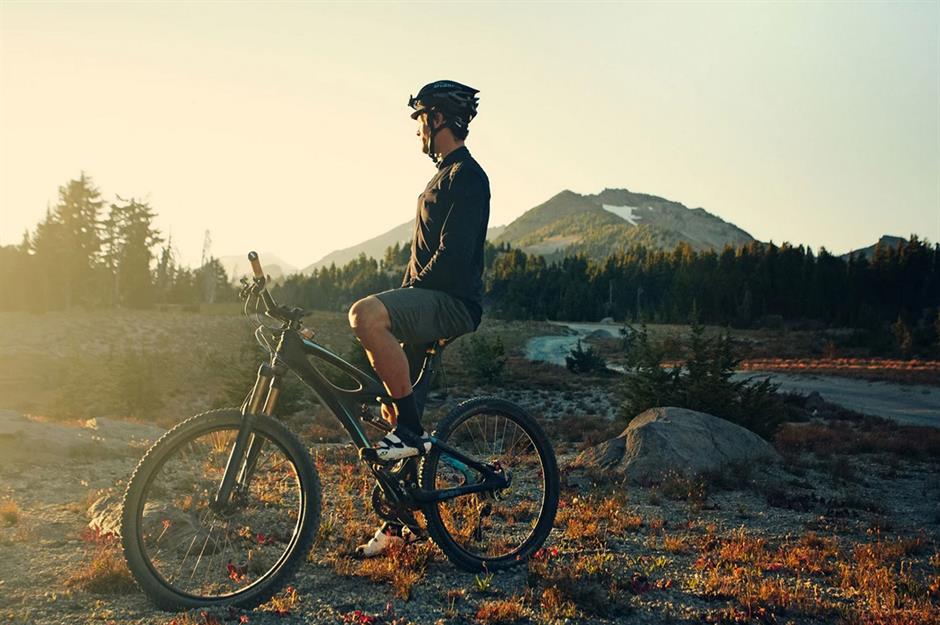
Volkswagen
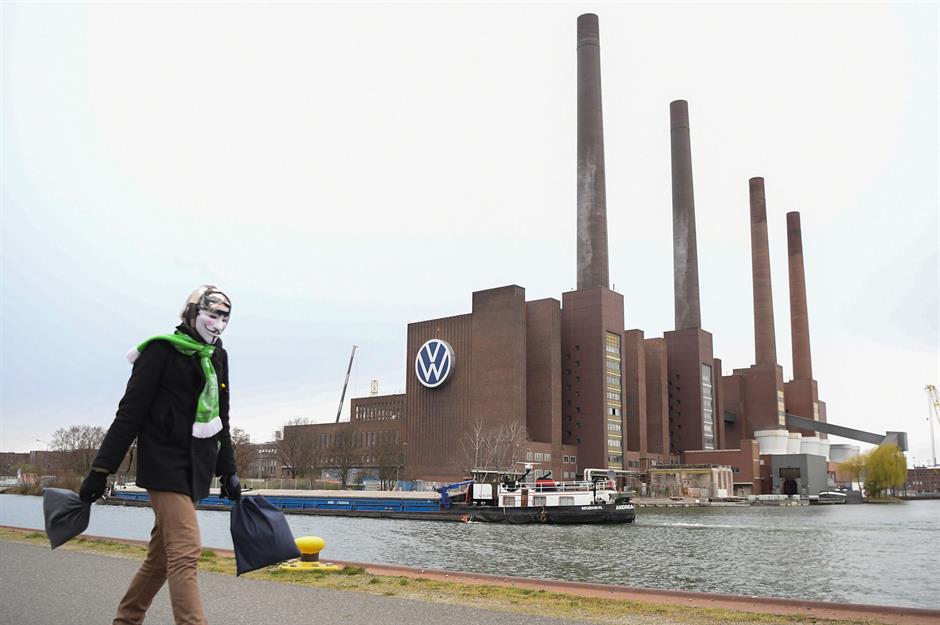
Volkswagen has dug deep and spent around $43 million (£35m) on vital medical equipment from China, which will be shipped to hospitals and clinics in Germany. The automaker has also pledged to explore how its 125 3D printers could help make ventilators. Volkswagen has also agreed to pay full wages to any employee with medical qualifications who wishes to volunteer for the country's health service for up to 15 days.
Sponsored Content
MG
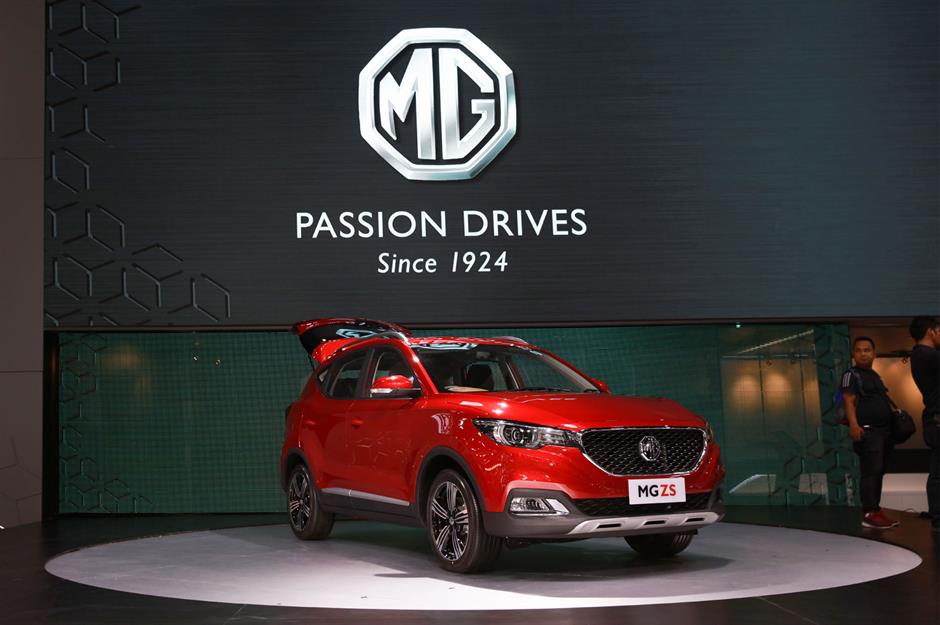
MG is doing its bit by loaning the UK's NHS up to 100 ZS compact SUVs. The eco-friendly vehicles, which will add to the organization's dwindling transport capacity, are going to be supplied free of charge for the first six months. Already six cars have been sent out to NHS Trusts in South Cumbria and Lancashire.
Nestlé
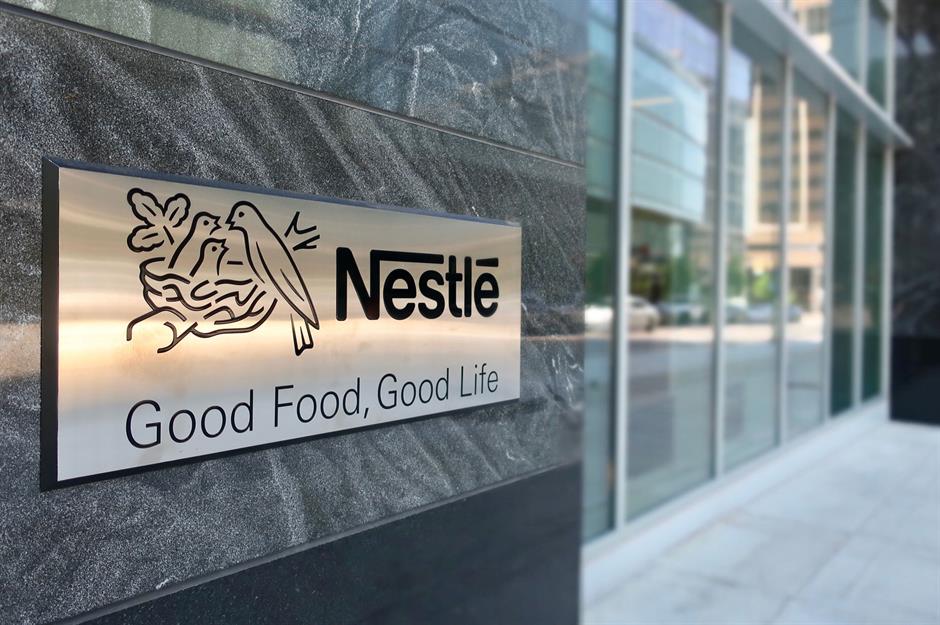
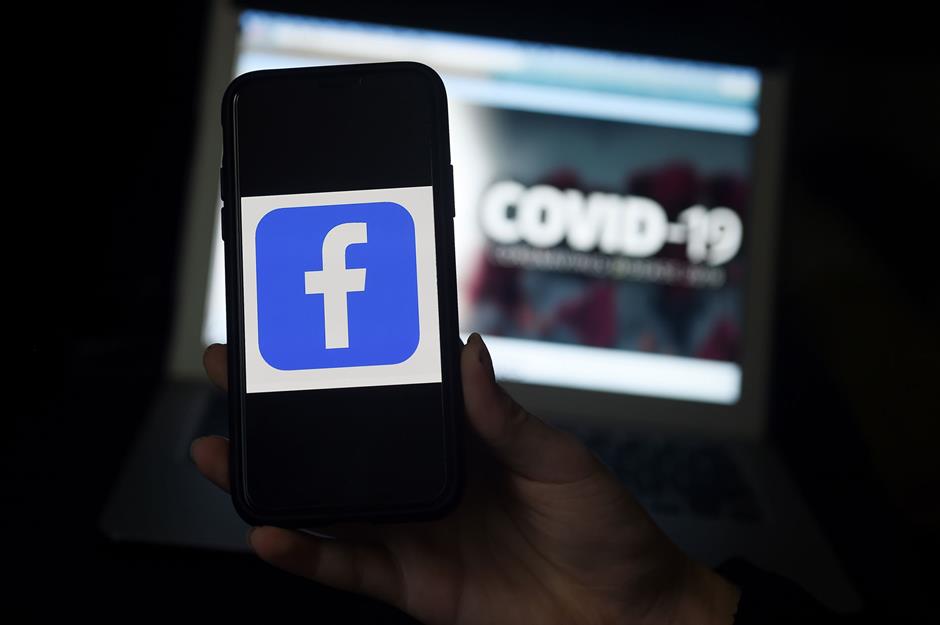
Facebook has opted for a multifaceted approach to battle coronavirus. On top of investing $100 million (£81m) in the news industry, the world's most popular social media company is channeling the same amount of cash into supporting small- and medium-sized businesses, has given millions to the Covid-19 Solidarity Response Fund and donated more than 700,000 protective face masks.
Sponsored Content
Apple
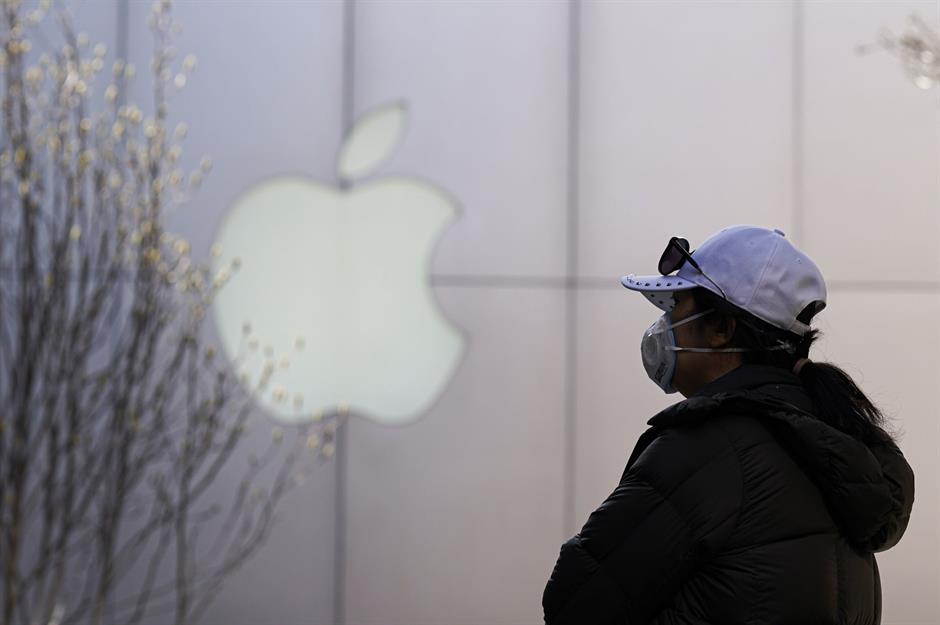
Echoing the actions of other US tech titans, Apple is working doubly hard to supply the US and Europe's hardest hit countries with millions of N95 masks, and its charitable donations to date total $15 million (£12m). On the tech side, the iPhone maker has released a Covid-19 screening app and website in partnership with the US Centers for Disease Control and Prevention (CDC) and has updated Siri to provide coronavirus advice.
Foxconn
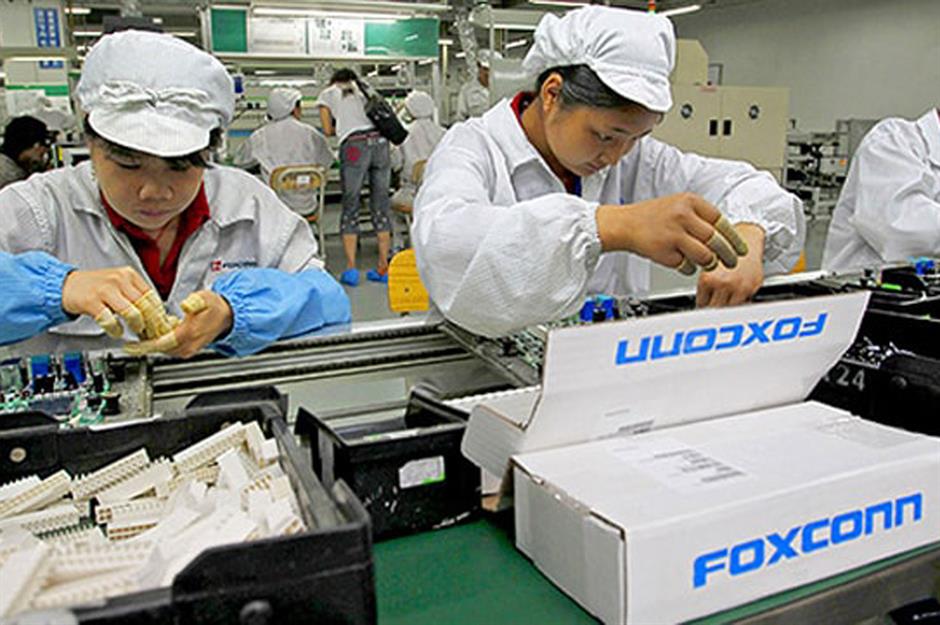
Microsoft
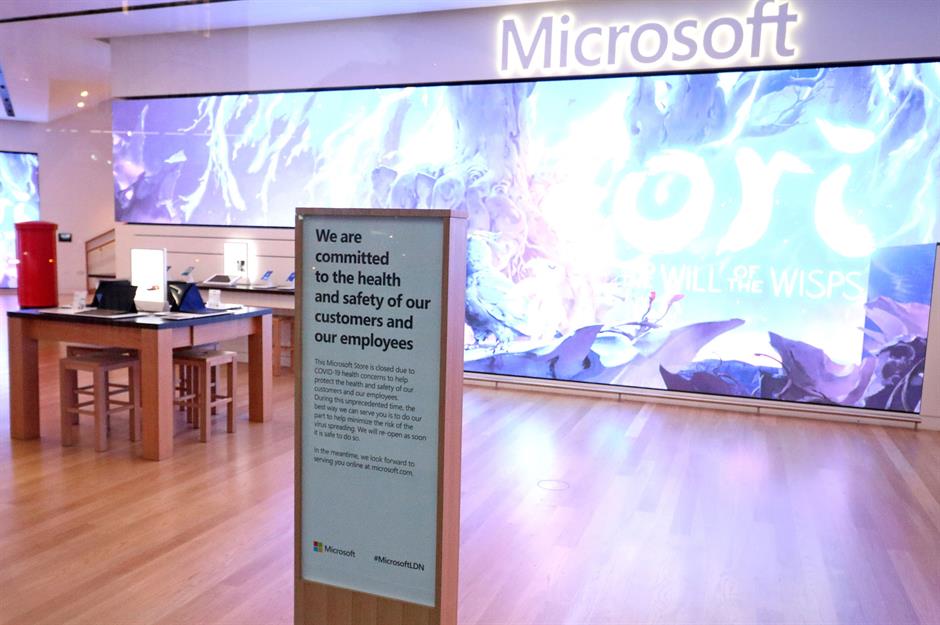
Sponsored Content
Intel
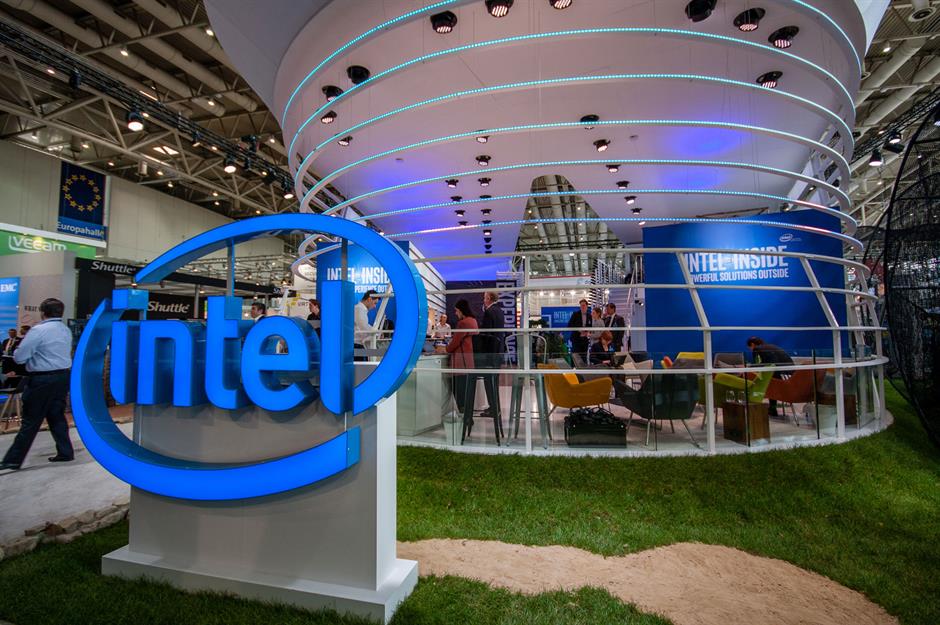
Intel is another leading US tech company going the extra mile to fight Covid-19. After donating $1 million (£807k) to the International Red Cross, the Silicon Valley company gave healthcare workers in the US a million PPE items, including masks, face shields and gloves. The firm is set to donate a further $4 million (£3.2m) towards coronavirus relief, as well as match up to $2 million (£1.6m) of employee donations.
HP
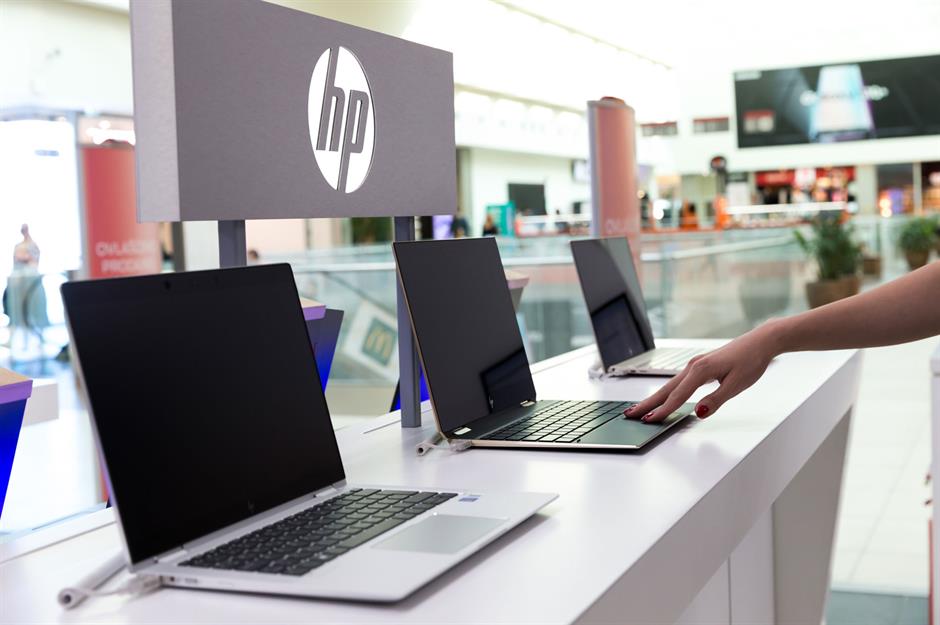
Walmart
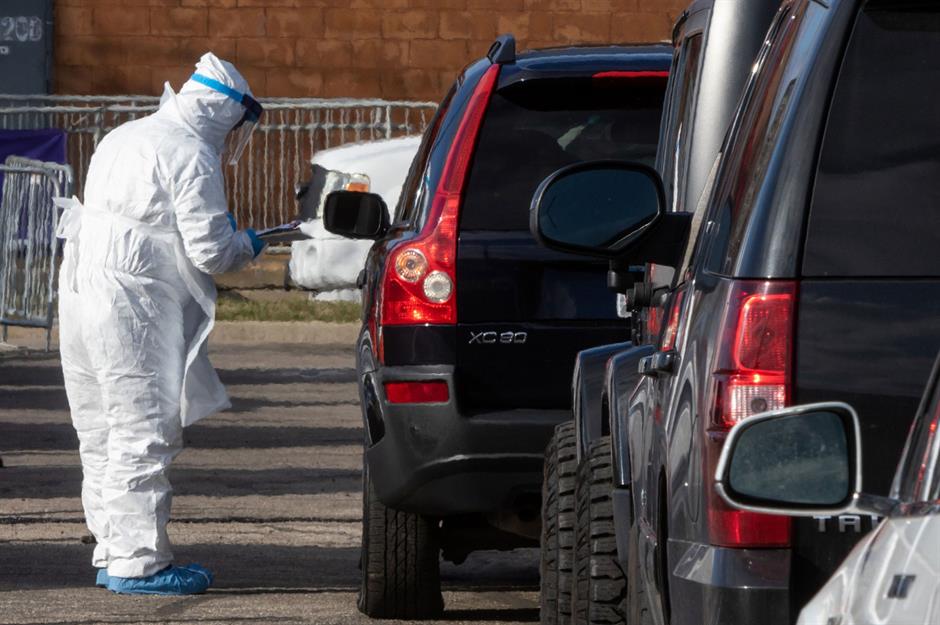
Walmart is hoping to make a difference with drive-thru coronavirus testing sites, with two opening in store parking lots in the Chicago area to date. America's biggest retailer has partnered with the US government to deliver the project. Bolstering its effort, the grocery chain has already pledged $25 million (£20.2m) to coronavirus-related charities.
Now read about the world's biggest employers hiring staff right now
Sponsored Content
Amazon
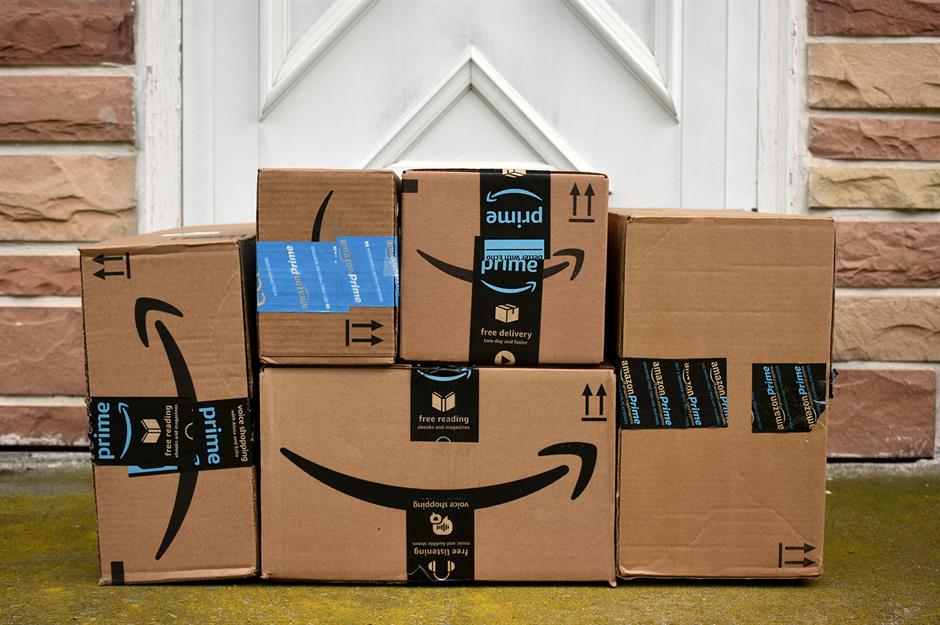
Online shopping is key at this time of crisis. Amazon has created 100,000 new jobs to cope with the jaw-dropping demand and is prioritizing deliveries of medical supplies, household staples and other essential items. The e-commerce behemoth is also helping to deliver test kits in the US, has offered its cloud customers free credits and is putting aside $7 million (£5.7m) to support local communities in the country.
Deliveroo, Pizza Hut, Itsu, Neat Burger and more
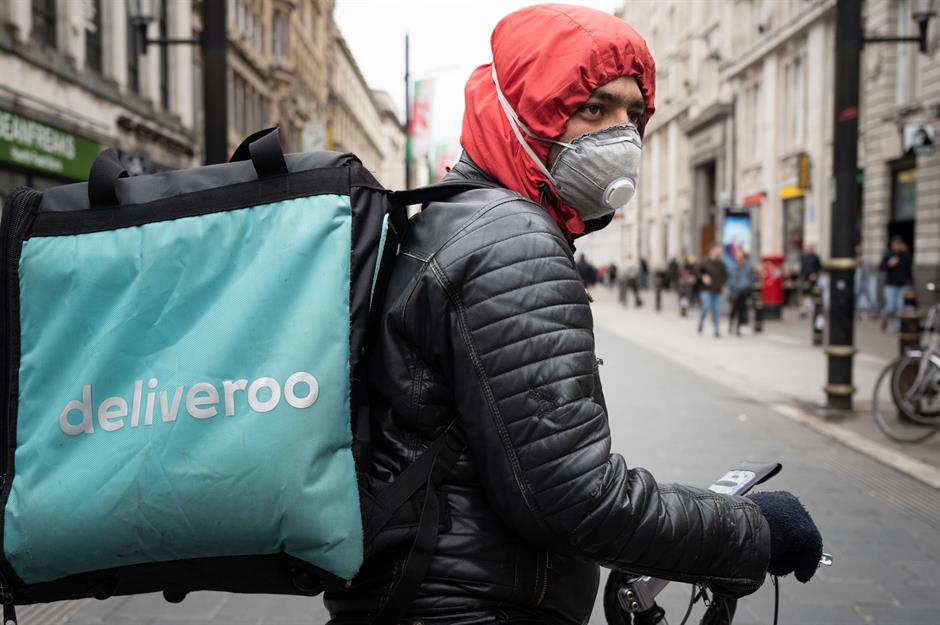
Other companies are fighting the disease by making sure health workers are well fed. Food delivery service Deliveroo has announced it will deliver 500,000 free meals to employees of the UK's NHS provided courtesy of Pizza Hut, Itsu, Neat Burger and other fast food and casual dining chains.
&pizza
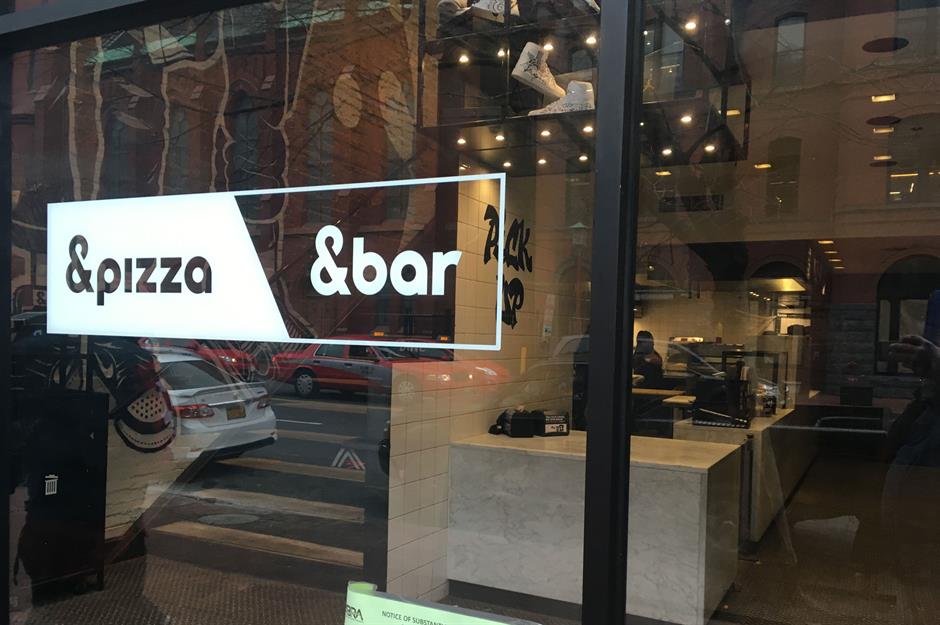
In America, &pizza is treating healthcare workers to free pizzas and, best of all, the company's offer is unlimited. To take advantage of the initiative, hospital staff simply need to show their work ID at any one of the fast casual dining chain's restaurants in Florida, Maryland, Massachusetts, New York, Pennsylvania or Washington DC.
Sponsored Content
Sweetgreen
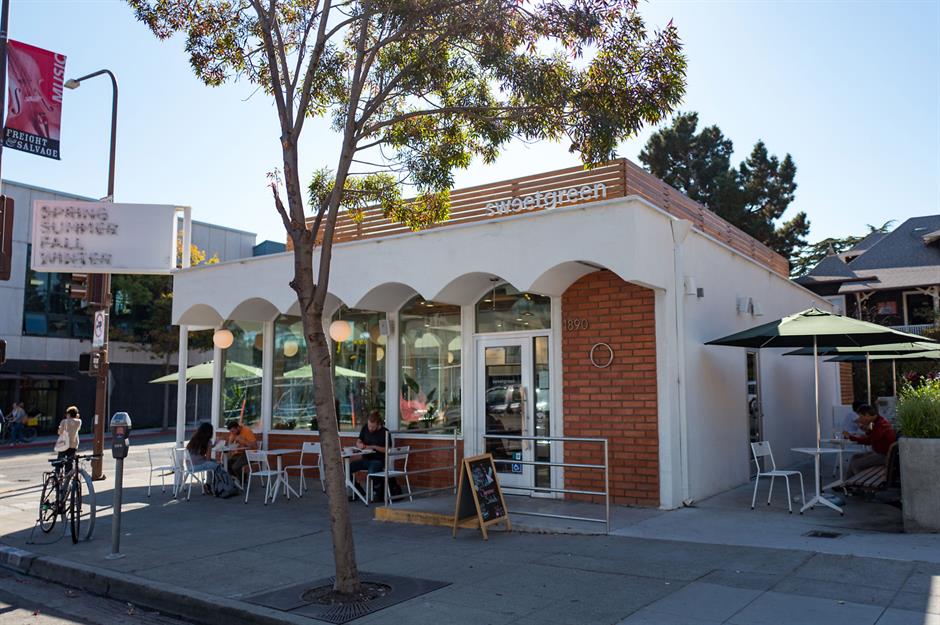
Fast casual dining chain Sweetgreen is providing front-line medical staff with free salads and warm bowls. The service is available to hospital and clinic employees in US cities with Sweetgreen locations, including New York and Chicago.
Airbnb
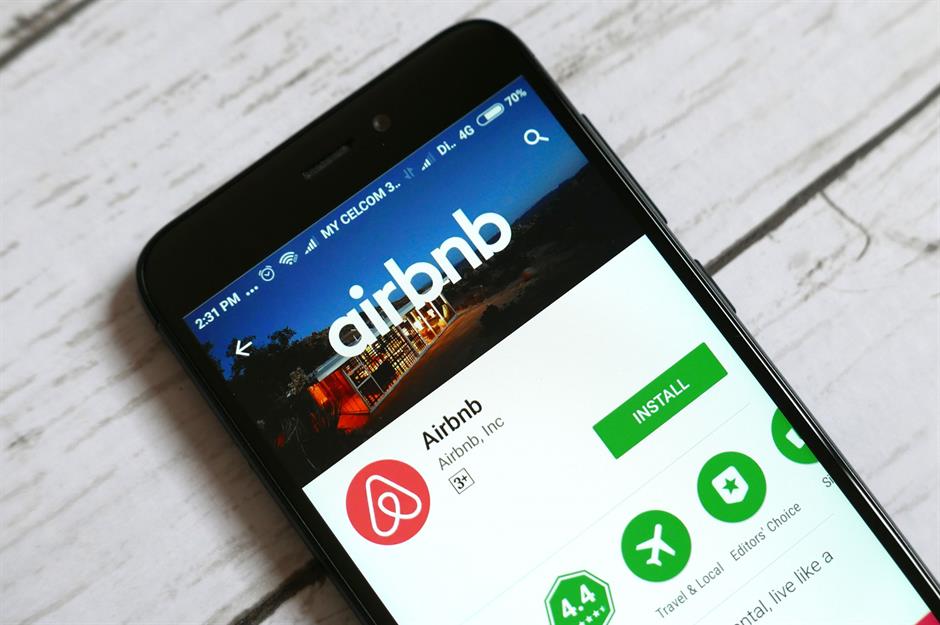
Airbnb has come to the aid of the UK's key medical workers and carers by offering them a place to crash free of charge. The online accommodation marketplace, which is listing available properties on its Open Homes platform, has set itself the goal of putting up 100,000 healthcare professionals, first responders and relief workers.
Read about how Airbnb grew from one bedroom to a global business
Stock Exchange Hotel and Hotel Football
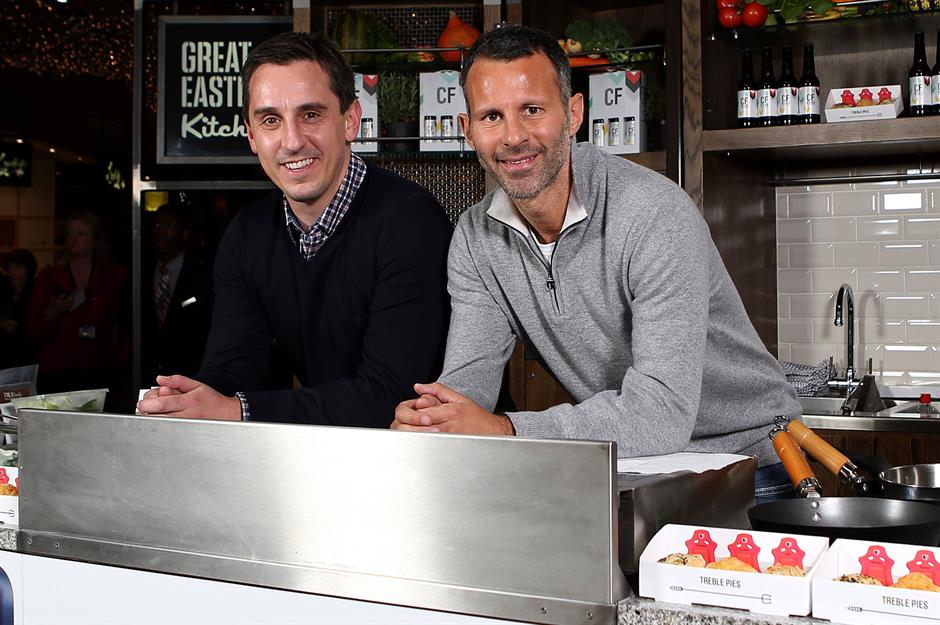
Manchester United soccer legends Gary Neville and Ryan Giggs have closed Stock Exchange Hotel and Hotel Football, the hotels they own in Manchester along with several other former teammates, to paying guests and opened up all rooms, which offer a total of 176 beds, to NHS staff.
Sponsored Content
Four Seasons
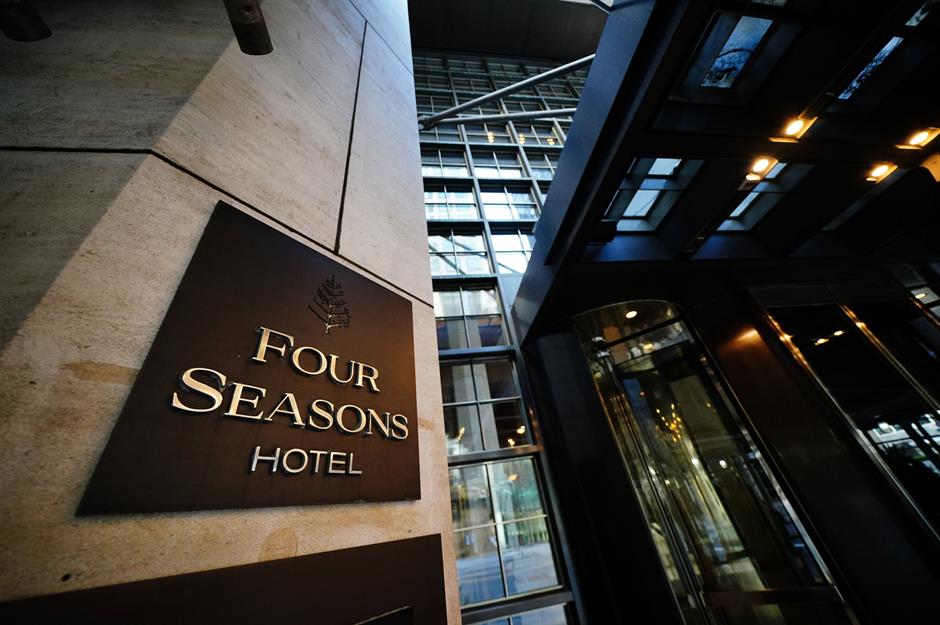
OYO Rooms
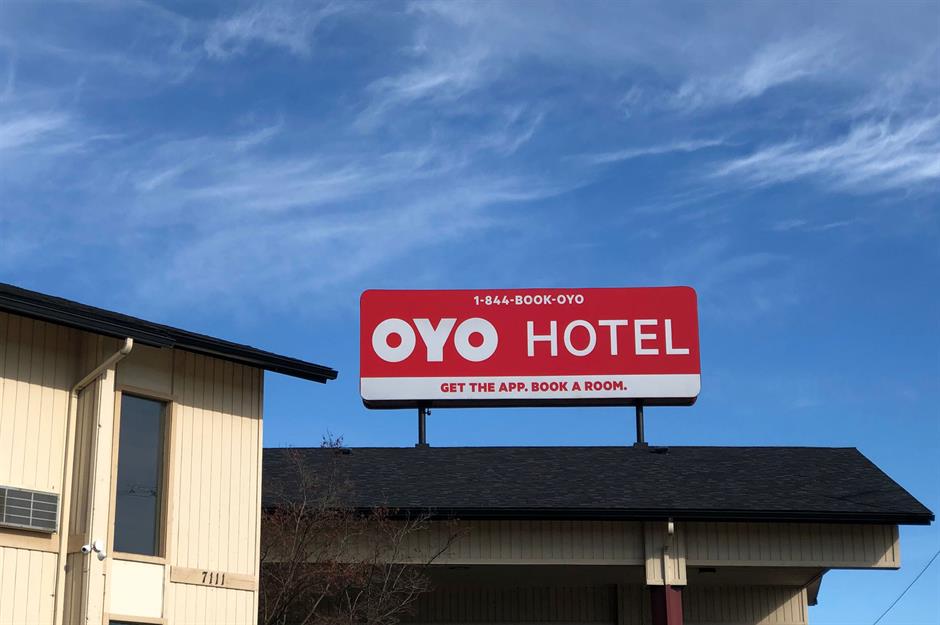
Ayre Hotels
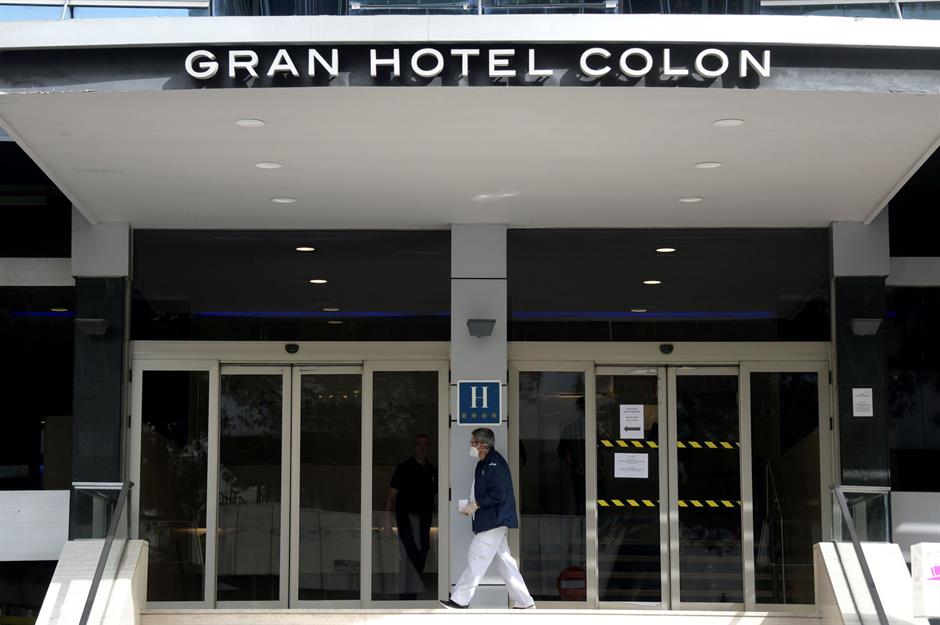
Sponsored Content
Room Mate Hotels
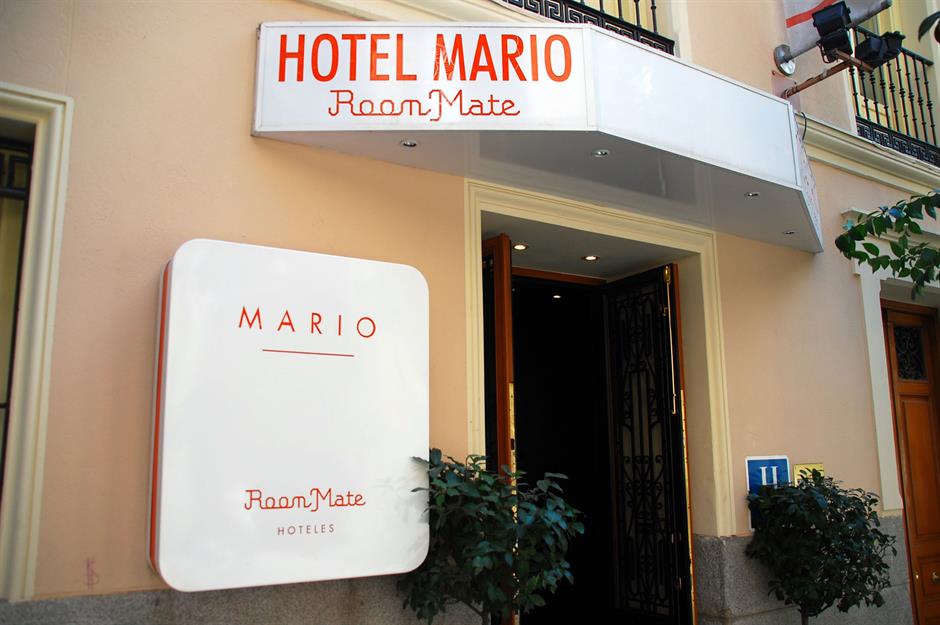
Elsewhere in Madrid, Hotel Mario, which is part of the Room Mate group and boasts 54 good-sized rooms, is housing essential medical workers free of charge and was indeed the first company in Spain to provide this service. All in all, 40 hotels are now offering hospitals and other healthcare organizations use of their rooms and amenities.
Kroger
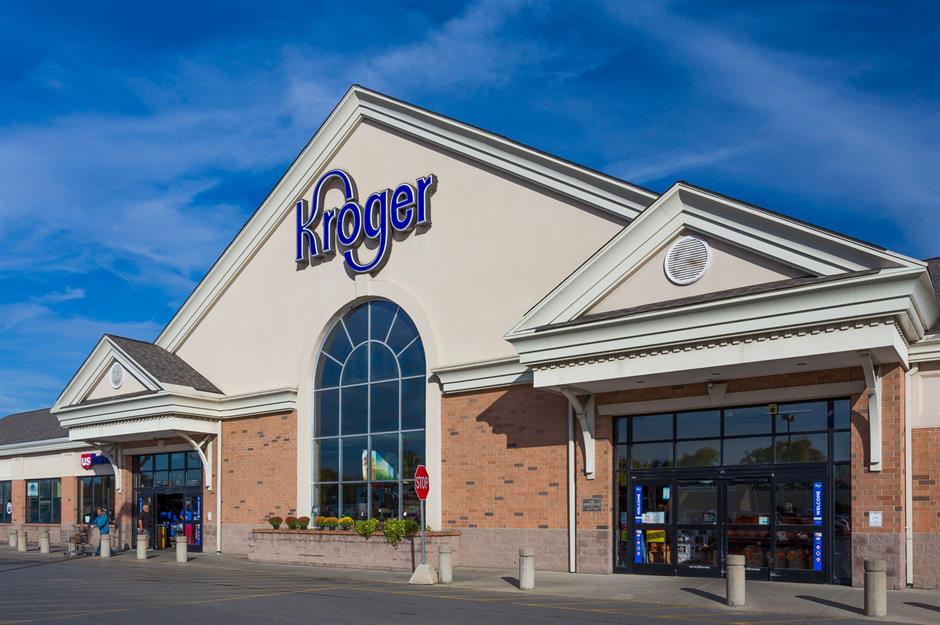
The world's largest supermarket chain is helping less affluent Americans during the crisis by donating $3 million (£2.4m) to ensure food banks around the country are stocked up and children who qualify for free school lunches continue to have access to nutritious meals. Like many other US chains, Kroger is reserving the first hour of the day for older customers, expectant mothers, first responders and people with underlying conditions.
Moderna
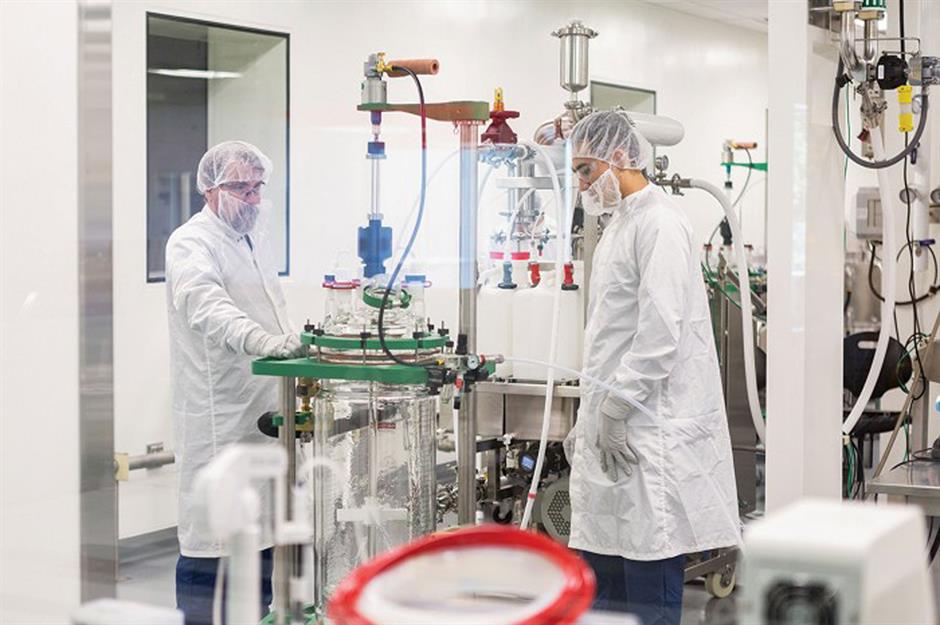
Big pharma, medium-sized biotech companies and small-scale start-ups the world over are racing to create a coronavirus vaccine and bring it to market in record time. In fact the New York Times has likened the quest to a global competition and arms race. According to the World Health Organization a total of 35 different vaccines are being developed. The front runner is Massachusetts start-up Moderna, which on 16 March became the first organization to launch human trials of its Covid-19 vaccine mRNA-1273.
Sponsored Content
CanSino Biologics
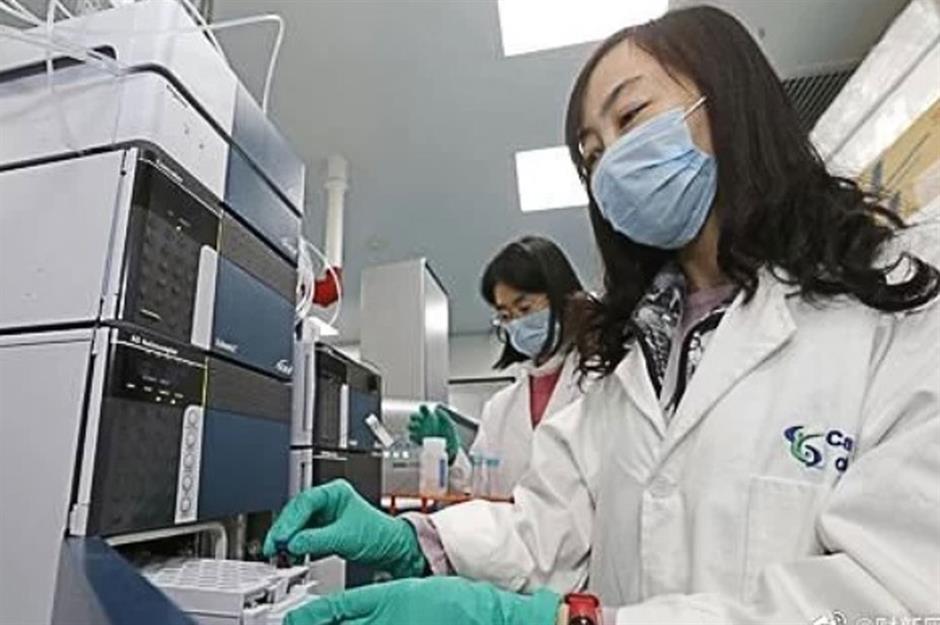
Hot on Moderna's heels is CanSino Biologics. The Chinese biotech company was given the green light to begin human trials of its coronavirus vaccine a day after Moderna started Phase I research. While Moderna's innovation is mRNA-based, a new type of vaccine that has never been approved, the drug being developed by CanSino Biologics uses a more conventional viral vector method to immunize the patient.
Inovio Pharmaceuticals
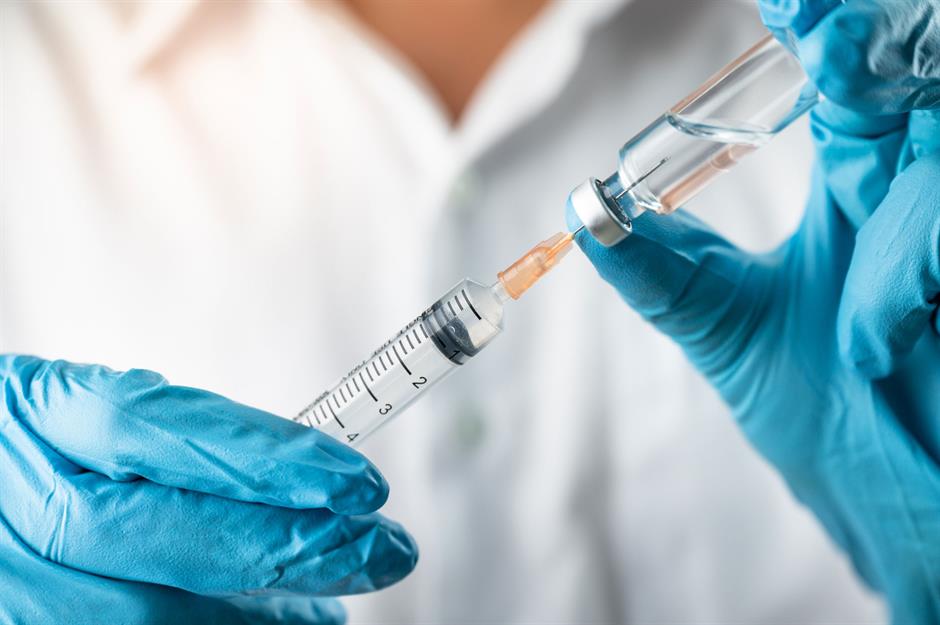
Pennsylvania-based Inovio Pharmaceuticals is also trying to develop a vaccine for Coronavirus. Phase I trials of the DNA vaccine, which received a $5 million (£4m) grant from the Bill & Melinda Gates Foundation in March, commence in April, and the company hopes to have a million doses ready by the end of the year.
BioNTech and Pfizer
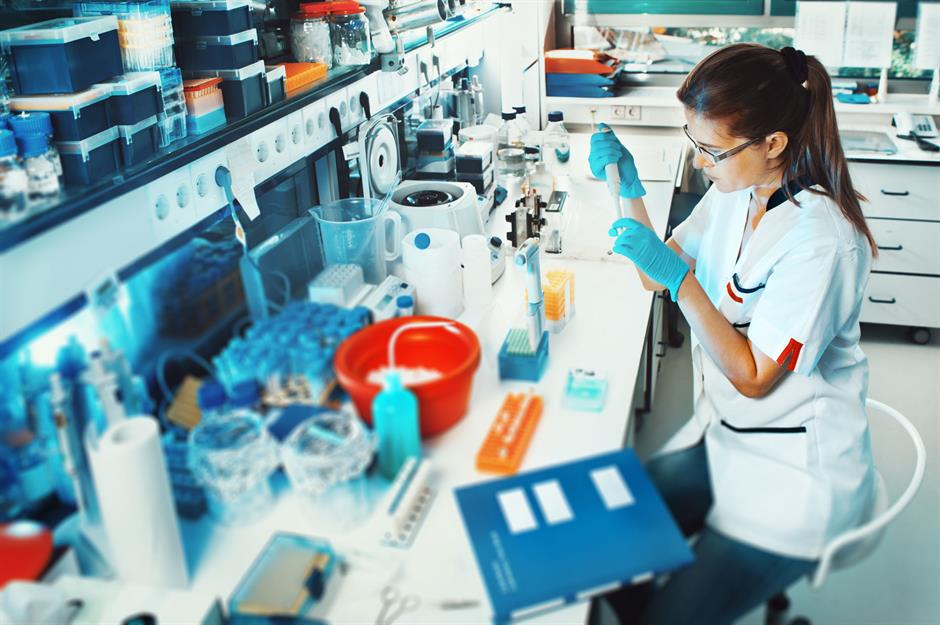
New York's Pfizer has teamed up with German company BioNTech to develop an mRNA-based vaccine. The firms intend to start trialing the drug in late April in the US and Germany, and are extending these trials to China. Pfizer has also responded to the crisis by issuing a five-point plan calling for pharmaceutical companies to share research and collaborate on an unprecedented level.
Sponsored Content
Johnson & Johnson
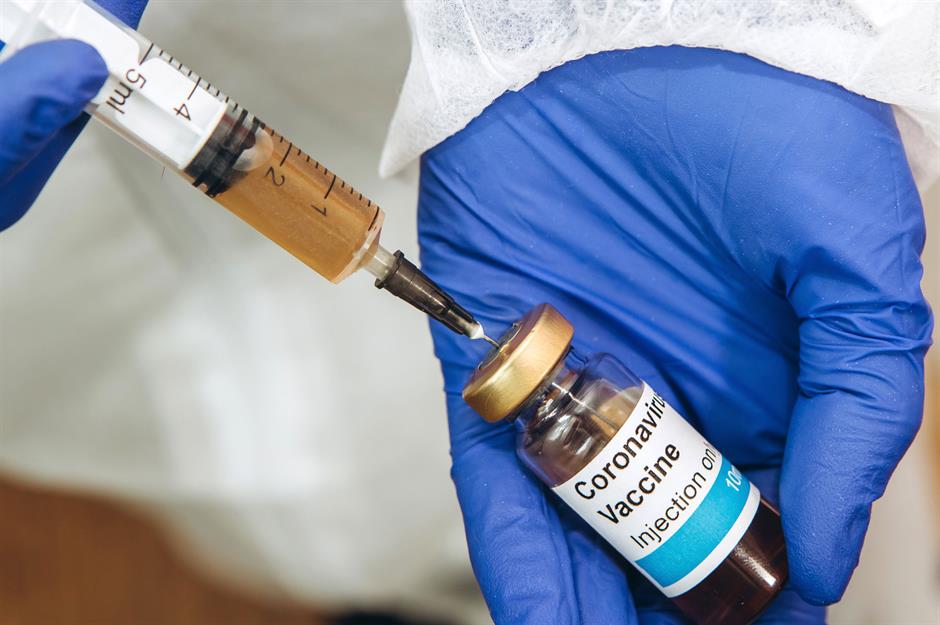
On top of donating face masks as well as millions of dollars to fight coronavirus, Johnson & Johnson is another major player vying to get a vaccine to the masses in record time. Preclinical testing of a number of candidates got going in mid-March and the American multinational business, which is collaborating with the US government's Biomedical Advanced Research and Development Authority (BARDA), hopes to start human trials in September.
GSK
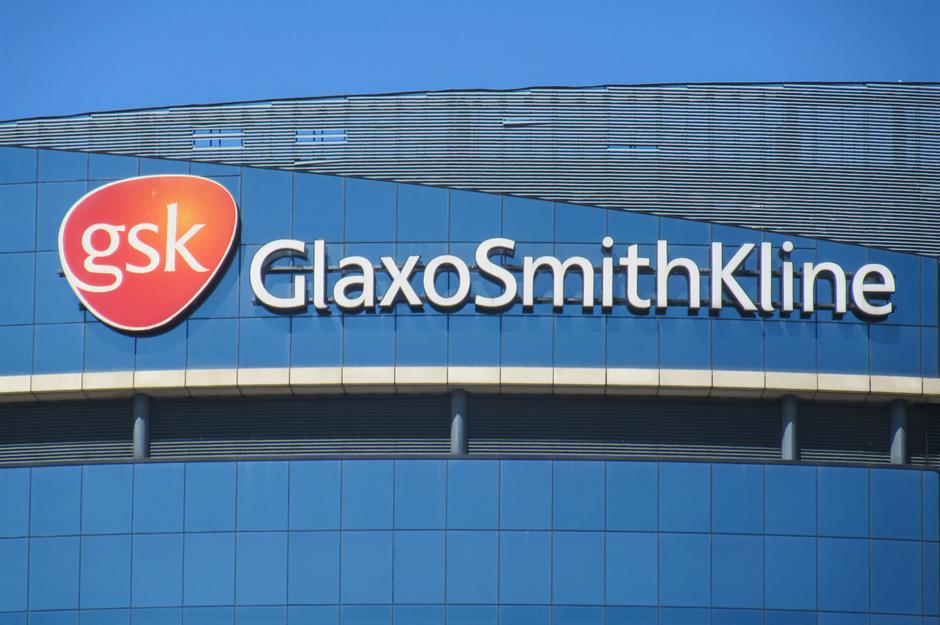
GlaxoSmithKline (GSK) has joined the fight by giving companies and research organizations access to its vaccine adjuvant platform technology, an innovation that boosts the potency of a vaccine, reducing the amount required per dose. The British firm is also planning to share manufacturing space to help scale up vaccine production, and has donated $10 million (£8.2m) to the UN's Covid-19 Solidarity Response Fund.
Sanofi
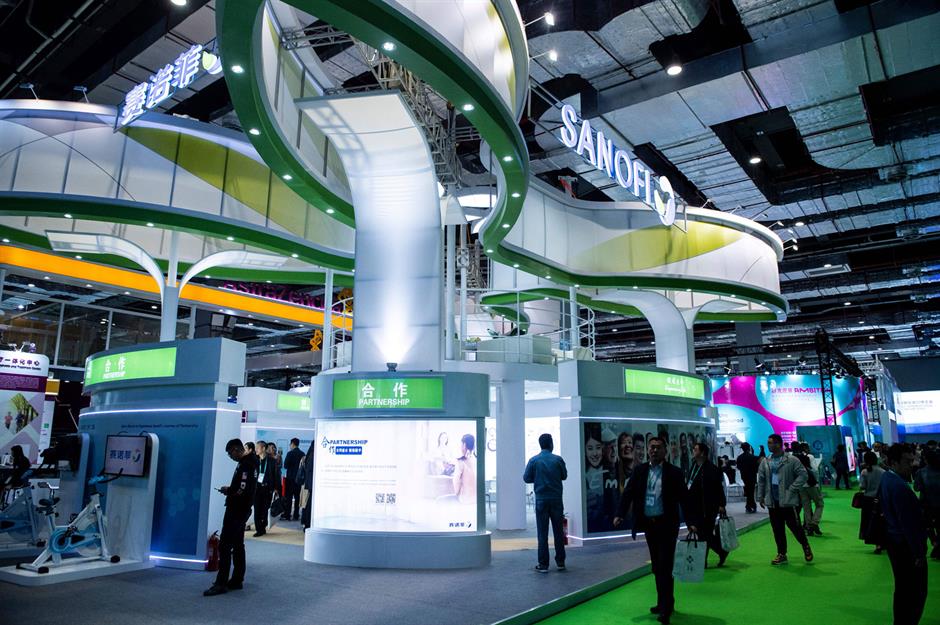
Big pharma stalwart Sanofi is also working with BARDA on preclinical testing of its DNA vaccine but the French firm doesn't expect human trials to begin until the spring of next year at the earliest. Other companies working on a vaccine include Heat Biologics, Greffex and Vaxil Bio. Frustratingly, though red tape has been cut and regulations relaxed, vaccines take time to develop and the first to protect against Covid-19 may not be ready for 12 to 18 months, or even further into the future.
Now read about brands that boomed during crises
Sponsored Content
Comments
Be the first to comment
Do you want to comment on this article? You need to be signed in for this feature